












We are extremely excited to announce that GFAS (Global Federation of Animal Sanctuaries) have chosen Wild Futures as the recipient of the GFAS 2024 Outstanding International Sanctuary Award.
This is a huge honour to have been chosen and recognised for all of the incredible work we do for rescued primates, and something we are incredibly proud of.
We really value our accreditation with GFAS as it validates the work that we do as a sanctuary. Unfortunately, in the UK there is no legal definition of a sanctuary, so working to the standards set out by a global federation like this, and going through the rigorous inspections and checks, allows us to proudly say that we are a true sanctuary with the welfare of the animals in our care at the forefront of everything we do.
Valerie Taylor, Executive Director of GFAS, comments “This year’s award recipients truly embody and put into practice the GFAS philosophy of vision, dedication, and excellence in animal care. Part of the GFAS mission is to recognize sanctuaries and rescue centres and raise awareness of their work, and the 2024 Award recipients serve as exemplary models of many important characteristics attributed to true sanctuaries, demonstrating professionalism, collaborative spirit, and leadership, all for the animals –qualities highly regarded by GFAS and the late Dr. Noon.”
Thank you to GFAS for giving us this award, for helping us maintain our visions, holding us to such high standards, and for all that you do to help animals come first.

If you would prefer to receive your newsletter via email, helping Wild Futures to save on costs and our environmental impact, please email us info@wildfutures.org
Thank you – It’s hard to put into words the thanks and admiration I have for every single person that has made Wild Futures the charity it is today. In our busy day-to-day, we don’t often get the opportunity to stop and reflect on all the things that we have all achieved, and I am grateful that celebrating 60 years has given us that chance. From our humble beginnings when our founder Len Williams started our work with huge aspirations, to this year becoming one step closer to the end of the horrendous primate pet trade in the UK. Every single person and monkey that has passed through our sanctuary doors has helped shape Wild Futures to become the charity it is today. And none of it would have been possible without you, our incredible supporters.



I have been in this role for less than a year, but I am fortunate to have been with Wild Futures in some capacity for 15 years now. Many of you I have had the privilege to speak with directly, but I want to take this opportunity to thank all of you for everything you have done and continue to do for Wild Futures and the monkeys in our care. Sadly, there are many atrocities happening all over the world, and it is often difficult to find joy and celebration and to know who to help and when. We do not take it lightly that you all choose to help and support us. Through the highs and the lows, you continue to be stood by our side, to care, and to put the needs of the monkeys in our care, and those that remain in the cruel pet trade, above anything else.
As a small charity with big aims, we are dependent on the generosity of others to continue our vital work. Together we have achieved so much over the last 60 years; rescued primates, provided a safe-haven, lobbied Governments, created a true sanctuary, and we hope that together we can continue achieving these things and working towards our biggest goal of ending the UK primate pet trade.
With a huge thank you to our Wild Futures team past and present for the love and dedication to the work they do and the monkeys in our care.
Congratulations on 60 years of Wild Futures!
Printed by

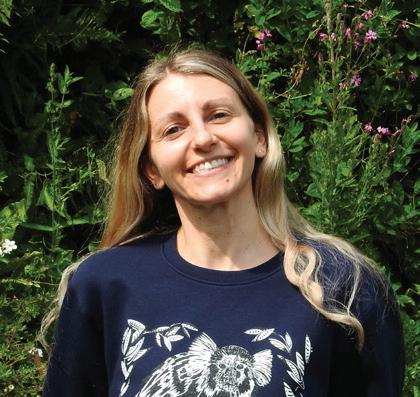
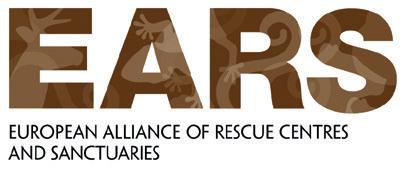


Futures, Murrayton House, St Martins, Looe, Cornwall PL13 1NZ Tel: 01503 262532 • Email: info@wildfutures.org Web: wildfutures.org • monkeysanctuary.org • adoptamonkey.org


Gizzie is a capuchin who was rescued from the UK primate pet trade back in 2010 and given a home for life with us here at The Monkey Sanctuary. She arrived underweight, missing digits and the end half of her tail. She was small, malnourished, and in pain.

Gizzie had been kept as a pet in a breezeblock outbuilding for many years with no heating. As a South American primate, she is unable to cope with the low temperatures that we experience here in the UK and, as a result, developed frostbite. She lost the end of her tail and some of her fingers due to the extreme cold and damp she was forced to endure. She was left crippled by arthritis, unable to grip as she should without many of her fingers, and, even now, she cannot use her hands properly.
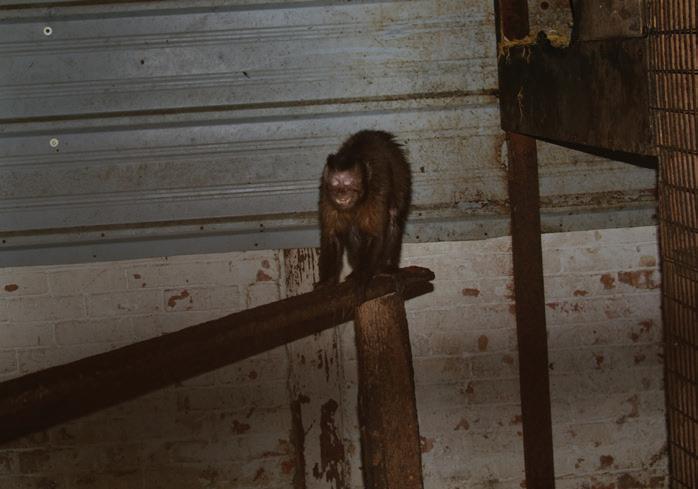
Gizzie was kept with two other monkeys; a male called Grips was the favourite of his owner. He was handreared and fed a diet of sweets and biscuits which caused him to develop type-2 diabetes. This disease eventually claimed his life in 2019, after 9 years living at our sanctuary. Gizzie also lived with her daughter, Kiwi. This is very uncommon within the pet trade, particularly for daughters, as they are usually forcibly removed from their mothers. Females are considered
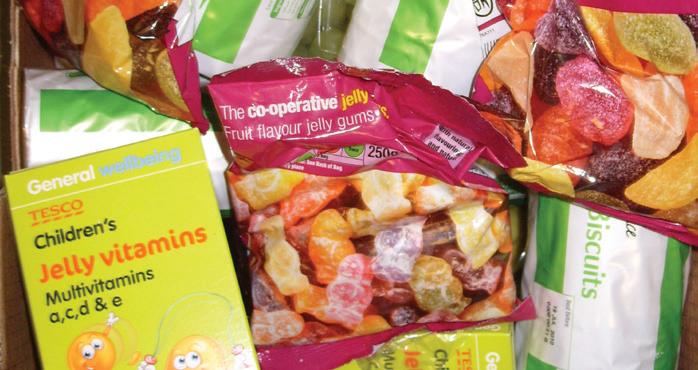
highly valuable to breeders wanting to continue breeding and selling their offspring. But thankfully, Kiwi stayed with her mum and was therefore able to learn and grow alongside her without being ripped away at a young age.
Nowadays, Gizzie receives daily pain relief to help manage her severe arthritis, and she has made some incredible improvements over the years. She moves slower than a lot of her monkey friends, but she gets around her enclosures well. She is still living with her daughter, Kiwi, which is lovely, as this is how most mothers and daughters would spend their lives in the wild, staying within their natal group.
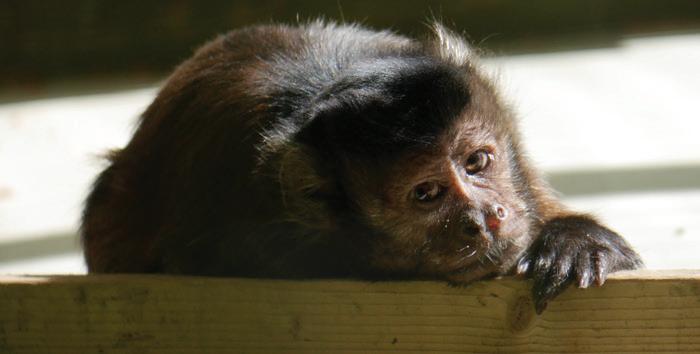
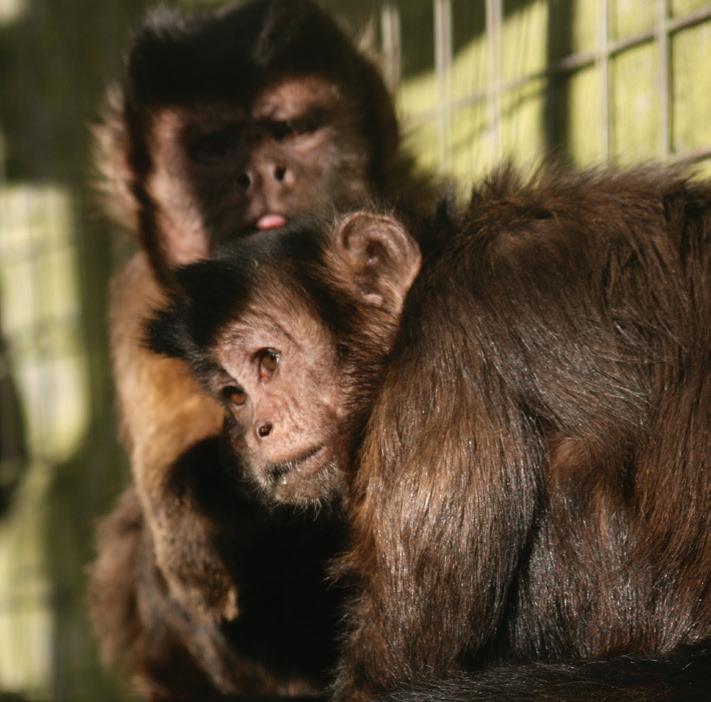
Gizzie has also made many other friends over the years, and today lives happily in a small group of capuchins. She really loves to snuggle up inside a cosy, heated room in the winter, but equally so, she also loves sunbathing and foraging around in the greenery in the warmer weather. Sometimes, her carers really struggle to spot her as she is very small in size for a capuchin and is easily missed amongst the lush vegetation of her enclosures - she just loves to hunt for snacks!
Gizzie is now an elderly monkey, estimated to be 36 years old. This is a very impressive age for a capuchin monkey, especially one who spent two decades of her life in terrible conditions within the pet trade. Gizzie is dearly loved by all around her, from her monkey friends to her carers. Her sweet yet fiesty nature is sure to capture your heart!
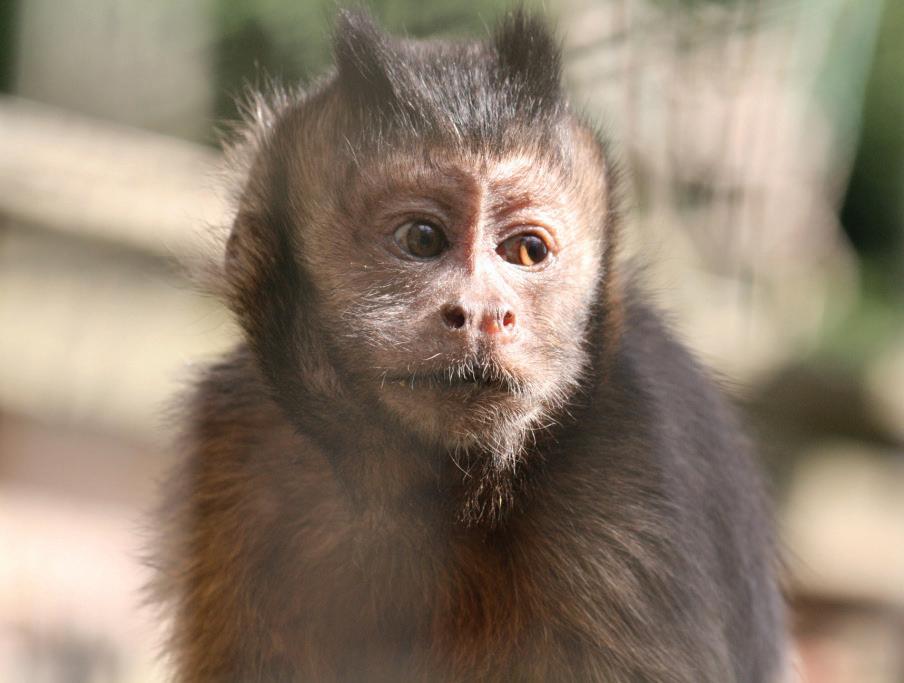
We are extremely proud to be celebrating 60 years of Wild Futures this year! Established in 1964, Wild Futures began life as The Monkey Sanctuary, offering refuge to woolly monkeys in response to the rapid growth in the popularity of keeping exotic animals as pets. At such an tremendous milestone, we take this opportunity to look back at some of the incredible work we have achieved in these 60 years.
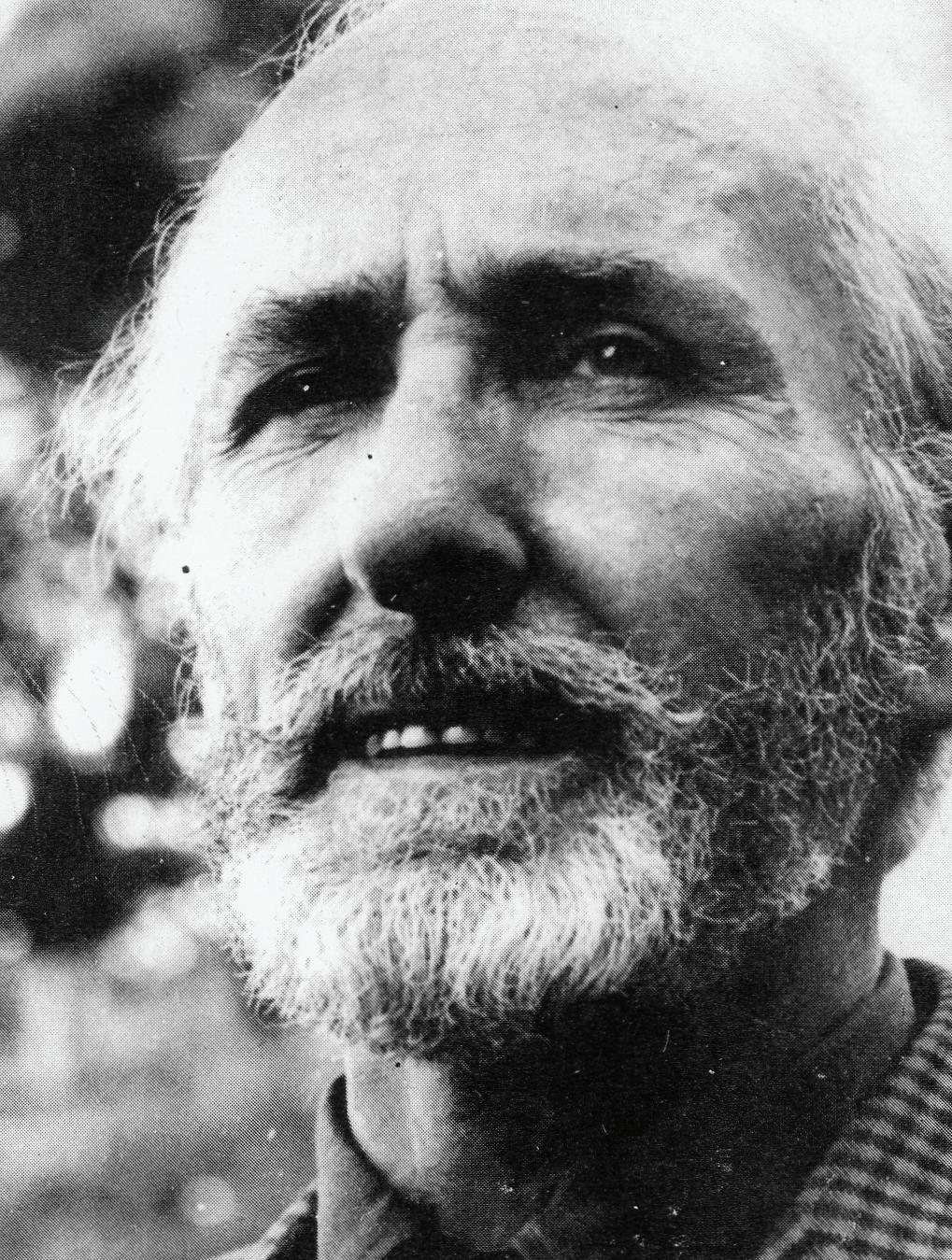
In 1964, our founder, Len Williams, established The Monkey Sanctuary after recognising that primates are inherently unsuitable for being kept in domestic situations. From initially providing care for just five monkeys, The Monkey Sanctuary expanded, becoming the first in the world to successfully breed woolly monkeys; its primate residents living out long and active lives. The high welfare standards and innovative territory design maximised social interaction and allowed the monkeys to live in close-to-natural colonies.
During the 1990’s resources became focused on releasing these captive bred woolly monkeys into protected reserves in South America. However, sadly, due to various genetic and practical reasons, their release into the wild was not possible. With those hopes dashed, in 2000, The Monkey Sanctuary ceased its breeding program for woolly monkeys. Efforts instead returned to rescuing from the pet trade which was,
and, even 60 years on, tragically still is, thriving in the UK.
Frosty the capuchin monkey was rescued in 2001, soon being joined by several more capuchins rescued from lives of isolation and inadequate care as pets. Today these monkeys form cohesive social groups, living in specially designed territories where they can exercise, socialise, and play, and where their complex needs are met for the rest of their lives.
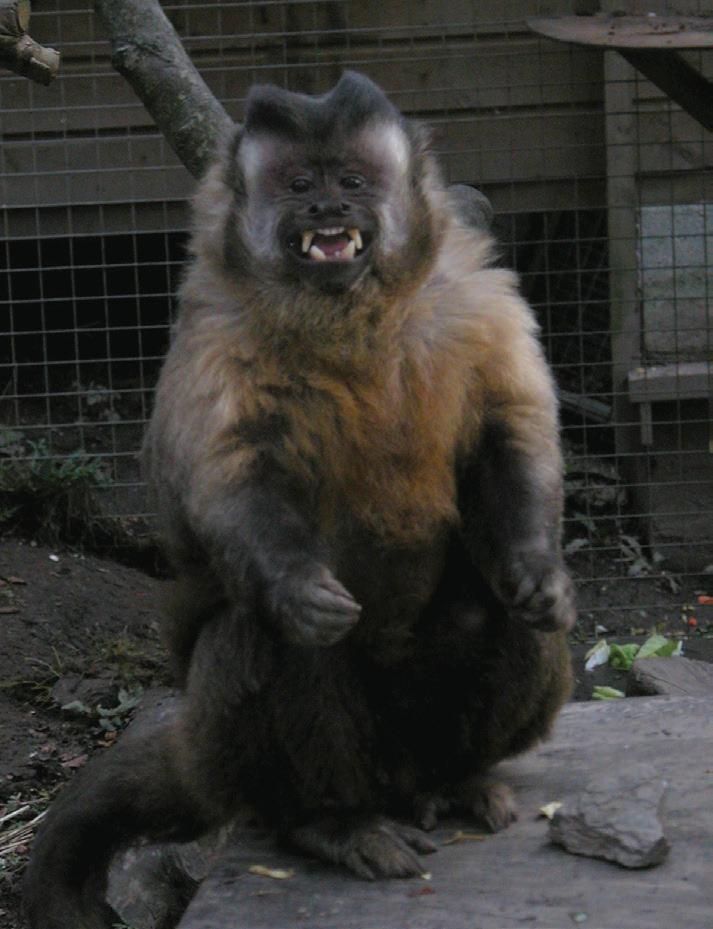
Len’s project and vision grew organically over the years, building from a few dedicated volunteers to an extensively skilled team of people working in diverse areas; including healthcare, campaigning, environmental education, sustainability and support of overseas projects. To accommodate these

changes, The Monkey Sanctuary went from being a private project to a workers’ cooperative, before ultimately gaining charitable status in 2004.
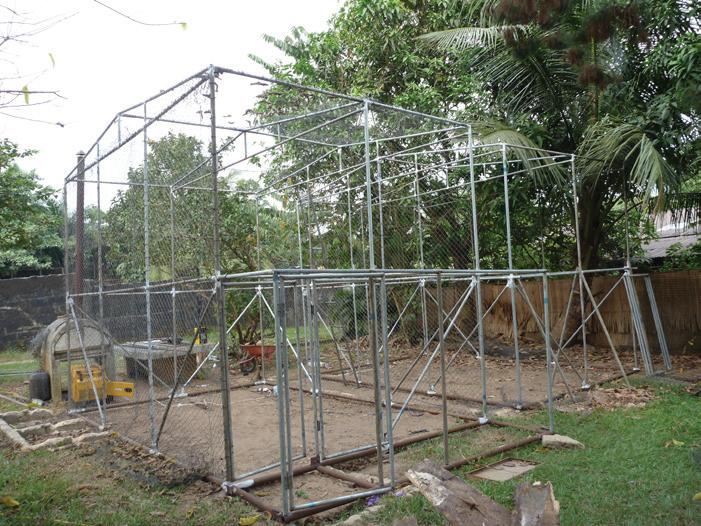
2004 was also the year that saw us embark on our journey of campaigning to end the primate pet trade, having, by now, born witness to so many awful examples of the unnecessary suffering it causes.
Whilst caring for the monkeys, The Monkey Sanctuary had also continued to build upon its other key areas of

work; advising at government level in the UK and abroad in the campaign to end the primate pet trade; delivering far-reaching educational outreach programmes; winning awards for sustainable practice and protecting habitats in the UK as well as supporting primate conservation projects overseas. So great was the increase in work in these areas that the team concluded that The Monkey Sanctuary was no longer a suitable title for the charity, and so, in 2009, Wild Futures was born.
In 2008, we became home to four Barbary macaques and two patas monkeys, originally rescued from the trade in France, eventually ending up with us at The Monkey Sanctuary.
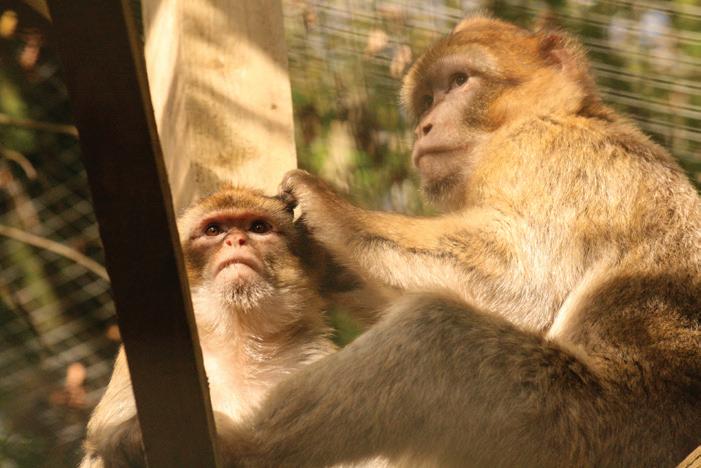
In 2010, we worked with the RSPCA to produce and publish the Code of Practice for the Welfare of Privately Kept Non-Human Primates, as part of the Animal Welfare Act 2006.
In 2012, Wild Futures’ Monkey Sanctuary received accreditation
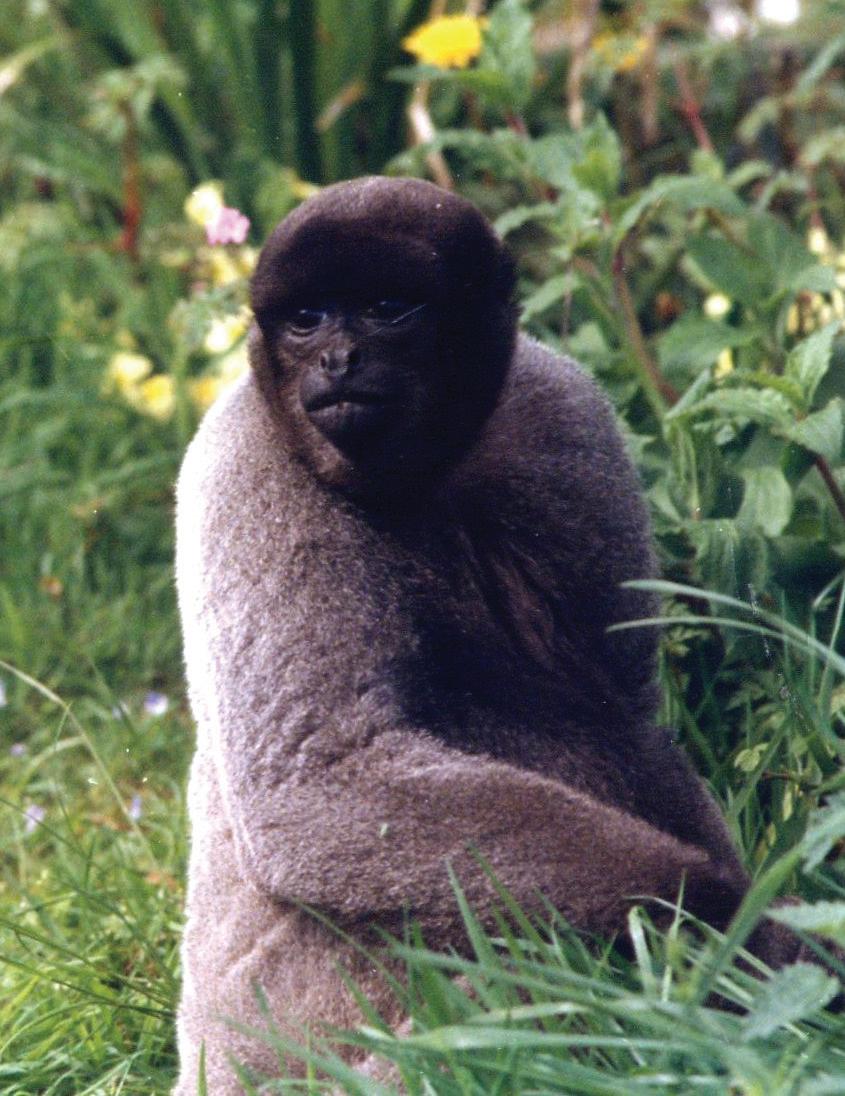
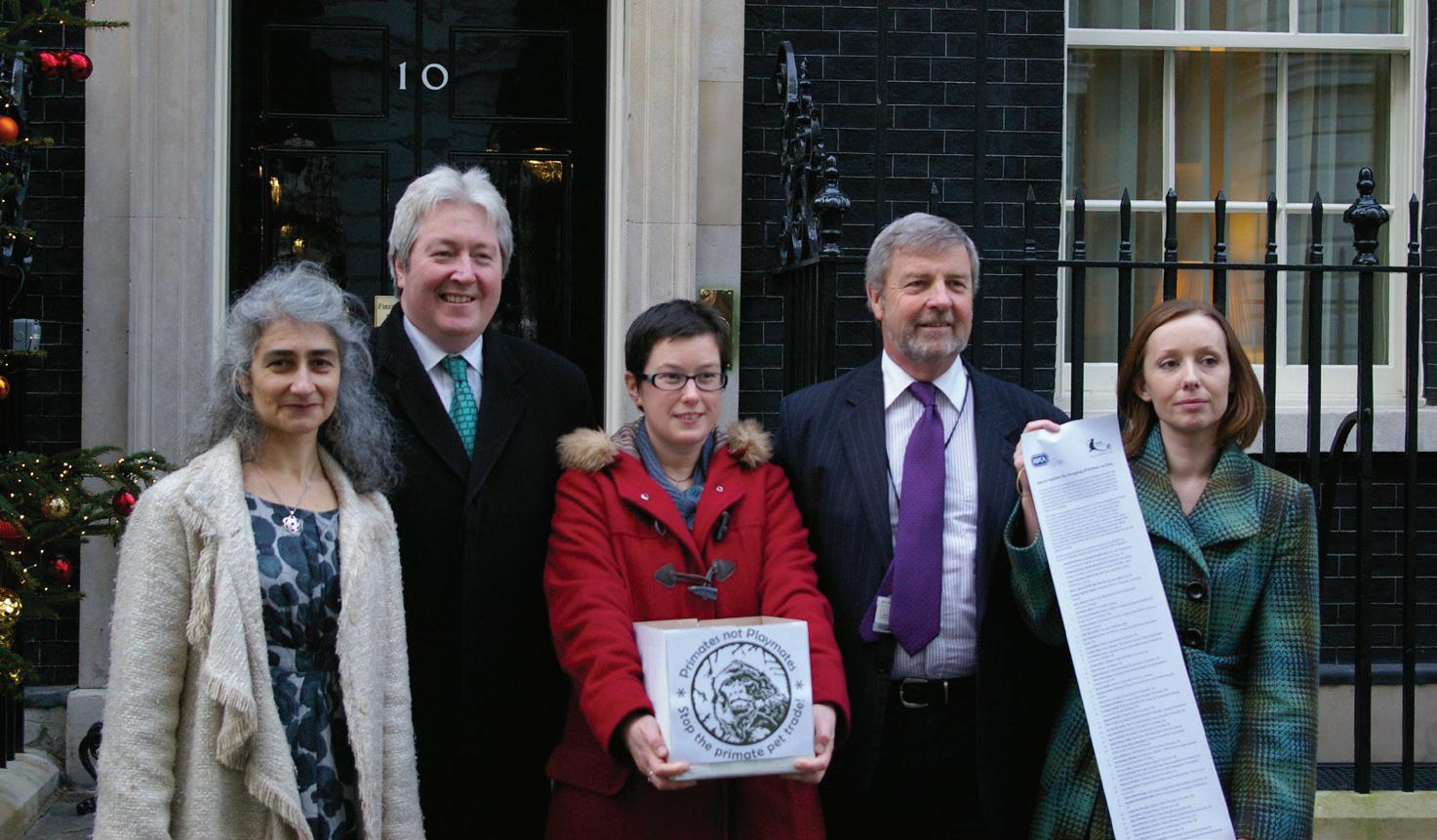
from the Global Federation of Animal Sanctuaries (GFAS), the first sanctuary to be accredited in Europe. During the same year, we were a founding member of the European Alliance of Rescue Centres and Sanctuaries (EARS) - a strong and dedicated network striving for the highest standards of animal welfare.
In 2016, in response to the alarming number of calls needing to rescue marmosets from the pet trade, we launched our fundraising campaign to build brand new enclosures for these monkeys to call their forever home. In 2018, we rescued the first of many marmosets!
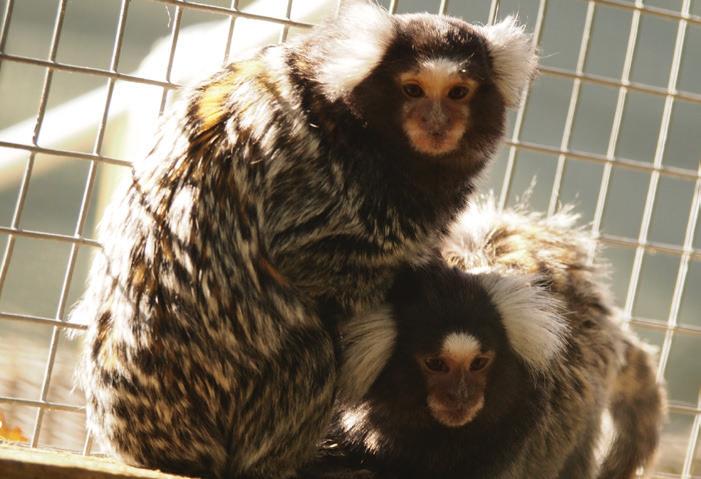
In 2020, we submitted written evidence in response to the DEFRA call for evidence on the welfare of primates as pets in England. Over the next four years, we would continue to work alongside the government and other animal welfare organisations to get to the latest piece of legislation – please see our campaigns update for more details.
Through the many highs and lows we have faced over the last 60 years, we are extremely proud of how far we have come and the work we have achieved. In total, we have rescued,
rehomed and assisted over 80 primates to either find their forever home with us at The Monkey Sanctuary, or aid them in finding a new home at another sanctuary.
With a global pandemic thrown into the mix, these recent years have been some of our hardest. It is thanks to all our incredible supporters, and our dedicated team, old and new, that we are still here today. We are rare in that we wish we didn’t have to exist, however, for as long as there’s the need to protect primates; we will continue to work tirelessly.
Thank you to everyone that has supported us over the years!
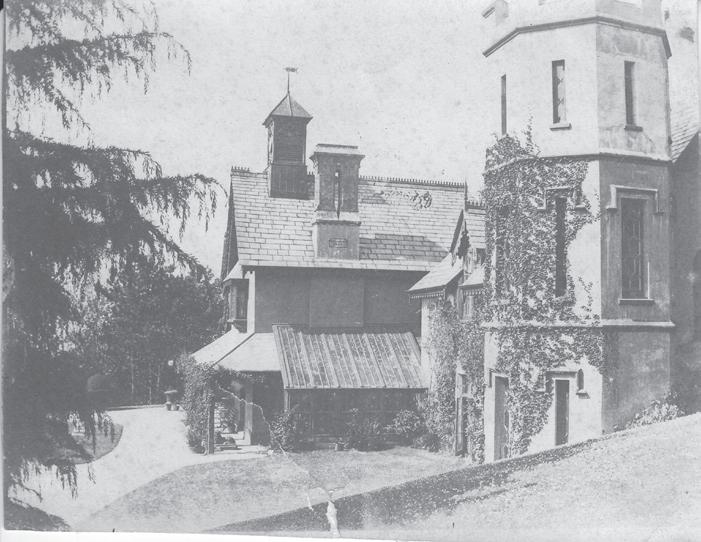
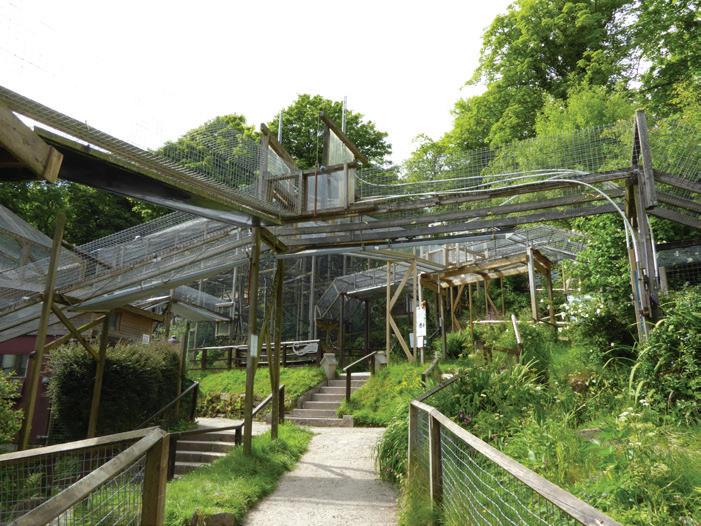
In our last update, we announced that in June 2023, Wild Futures contributed to a four-week consultation on ‘Licensing of specialist private primate keepers in England’ launched by Defra. Nearly six months later, on the 14th December, we were notified that the Government had laid the draft Animal Welfare (Primate Licences) (England) Regulations 2023 in Parliament, and published the summary of responses to its June 2023 consultation. Once debated and approved by Parliament, the licence would prohibit the keeping of primates as pets in England without a specialist licence.

Although pleased that this draft licence had been laid, we were concerned over some of the terminology in the draft and, while we knew we would not be able to change it at this late stage, we wanted to address it.
Throughout the months of January and February, Wild Futures worked closely with members of Born Free, Humane Society International/UK, RSPCA, The UK Centre of Animal Law, and Wildlife and Countryside Link to collate our concerns and, collaboratively, send them to MPs and interested parties. The initial ‘debate’ was on 31st January 2023, and our letter was used and cited by Labour MP Daniel Zeichner to highlight the fallbacks of the licence - a huge achievement for both us and the other organisations.
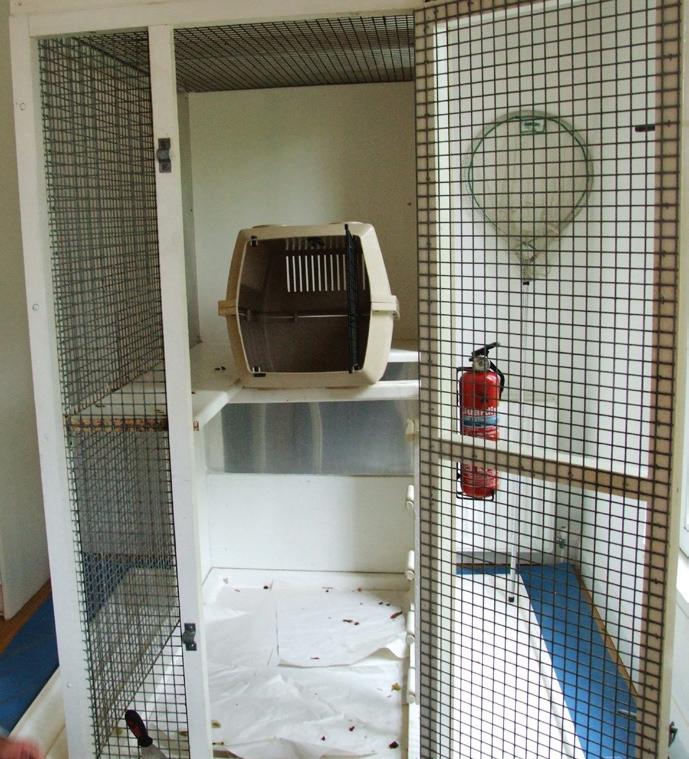
The next process was for The House of Lords to review the draft. This stage, is normally a ‘box ticking process’, however Baroness Hayman submitted

a motion to regret, forcing the subject to be discussed in session in the House of Lords, rather than just passed. This would likely not change the outcome, however having that discussion allowed those who had heard and echoed our concerns to put those concerns on record. The joint letter that we sent was used heavily in this discussion.
As predicted, in March 2024, the Government passed a Statutory Instrument (SI) The Animal Welfare (Primate Licences) (England) Regulations 2024, and although it is not the outcome that we want, we are still hopeful that it will make a meaningful difference. The licence will come into effect by April 2026. We were informed that the accompanying guidance for the licence would be available in April 2024, but we are, unfortunately, still waiting to see it.
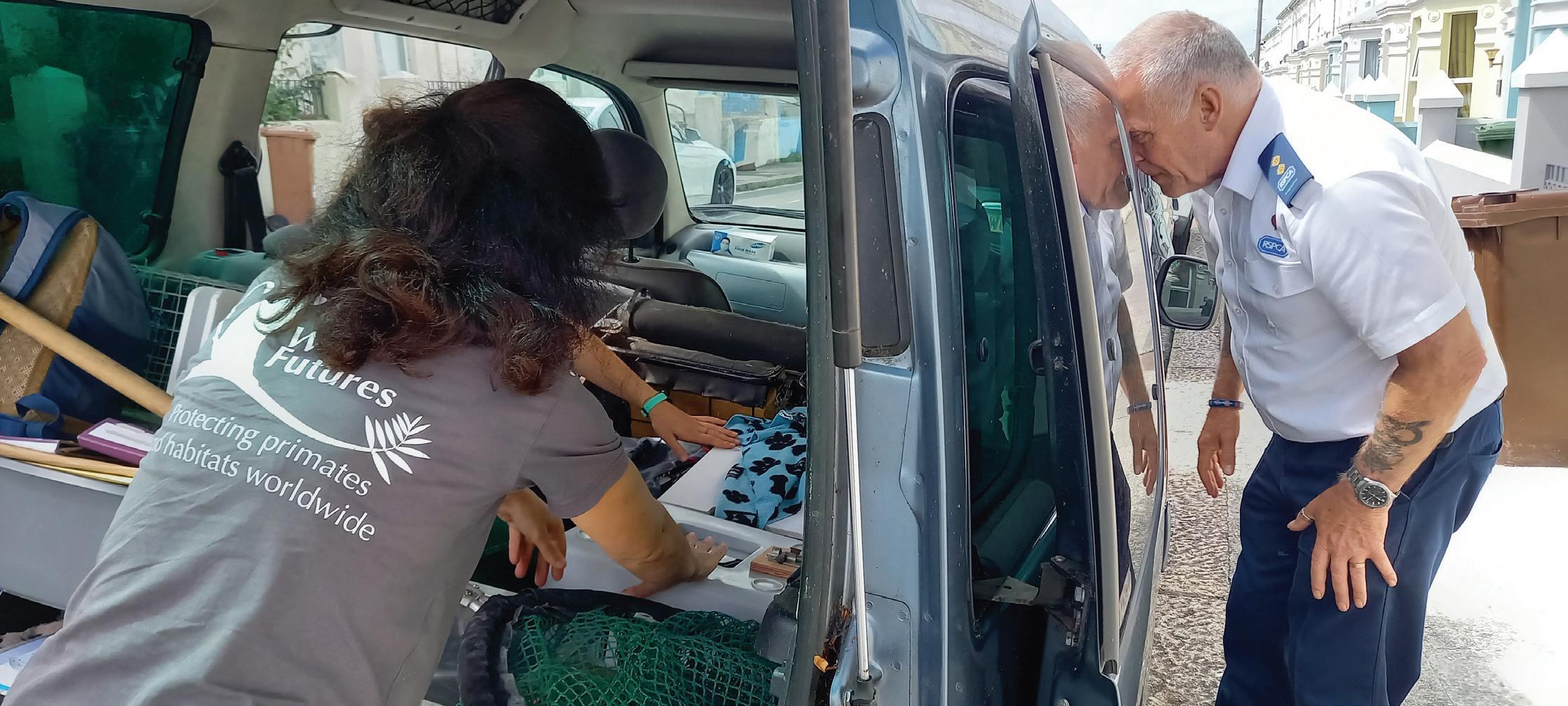
The Licence in summary:
• A person who keeps or is proposing to keep a primate in England on or after 6th April 2026 may only do so if the person has a primate licence under these Regulations or an exception applies. There are two exceptions for these purposes, namely where the primate is kept in a zoo under the Zoo Licensing Act 1981 (c. 37) or where the primate is kept in a place specified in a licence under the Animals (Scientific Procedures) Act 1986 (c. 14).
• A primate licence must be obtained from the local authority where the primates are kept or to be kept.
• A person who keeps a primate in England without a primate licence (where required) will be committing an offence under section 13(6) of the Animal Welfare Act 2006 (c. 45) and will be liable on summary conviction to imprisonment for a term of up to six months, a fine or both.
• Licensing under the Dangerous Wild Animal Act (DWAA) will also still be required for relevant species.
The enforcement date of April 2026 means that keepers have two years to ensure that they can meet the conditions of the licence as stated in the Regulations. These include the requirements that there are sufficient persons available for the care and management of the primates; that primates are microchipped and that detailed records are maintained for identification purposes. There must be written protocols and procedures for emergencies as well as dietary and hygiene requirements. Records must also be kept of any inappropriate or abnormal behaviours with up-to-date plans for mitigating such issues.
Responsibilities are being placed on owners to ensure the availability of veterinary cover and the prevention of disease and suffering alongside the implementation of precautions
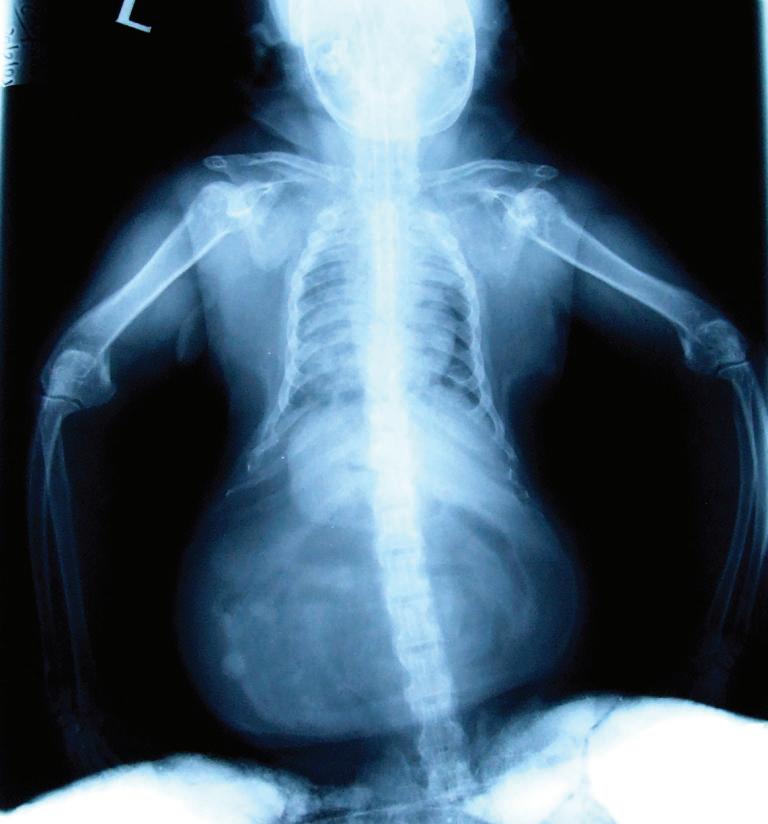
for the control of infectious diseases, including between primates and people. The primates’ environmental conditions including enclosure design must also reach certain standardsallowing access to both outdoor and indoor facilities, and providing a safe and sufficiently complex environment to allow occupants to exhibit natural behaviours.
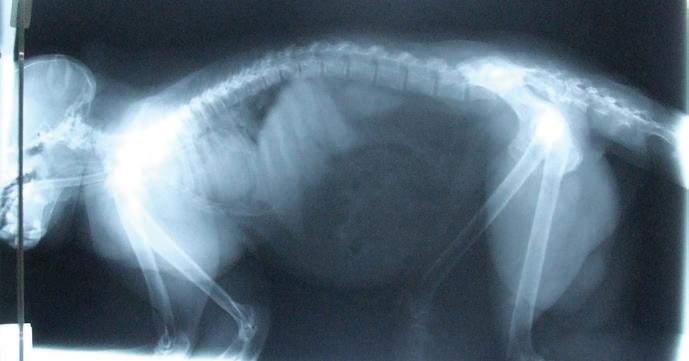
At the time of writing, the Guidance that is intended to accompany the Regulations has not been finalised. The Guidance will be essential to support Local Authorities, owners and veterinarians if the licensing scheme is to be effective and achieve the Governments stated aim that only private keepers who can provide zoolevel welfare standards will be able to keep primates.
This is not the ban that many of us have been calling for, and in particular there are concerns about definitions of terms and breeding, but if the Guidance is sufficiently rigorous, the new regulations could have a meaningful and positive impact on primate welfare. However, there are lingering questions, such as how do we resolve the potentially huge problem of rehoming those primates whose welfare conditions do not meet these new licensing standards.
Whatever happens, we won’t stop fighting to get a total ban on the keeping of primates as pets that we want, and they deserve.

Earlier this year, we were delighted to welcome David to the Sanctuary for a visit. David was so impressed by our work here at Wild Futures, that he donated an incredible £1,000. A donation like this makes a huge difference to the sustainability of the charity, to the primates in our care, and also to staff morale. We asked David for a few words about his gift;
‘We were made most welcome and we were given a tour of the sanctuary by Sarah, who was most accommodating. We were all very impressed with the dedication and motivation the staff showed towards their wards. Some of the stories of how the monkeys were treated by their original owners were despairing. We left full of admiration for the work you all carry out for the benefit of the primates in your care, so much so that I felt a donation would assist in some small way to alleviate the suffering these animals have endured with their previous owners’.
Thank you so much, David, for your incredible generosity!
Any amount, no matter how big or small, makes a difference and allows us to continue our work. To speak to the team about making a donation, please get in touch at fundraising@wildfutures.org or visit www.wildfutures.org/donate.



This year Wild Futures turns 60 years old! It’s a weird concept to celebrate that we have been rescuing and providing vital care to primates in need for 60 years, when ultimately, we haven’t yet achieved our biggest aim, which is to not be needed anymore. But it is worth celebrating. As although we have not yet reached our end goal, we need to commend and honour all of our achievements, hard work, and the changes that we have made to the welfare of primates in this country over the past 60 years.
For six decades we have welcomed countless humans through our doors, to volunteer and work for our charity, all sharing a dream to care for and to protect primates with a hope to make an
We are hoping to raise £60,000 to mark our 60th anniversary.
The money raised will allow us to continue caring for primates in need. It will go towards their daily care, providing them with the food, medication, and physical environment that they need, as well as the expert care that they require from skilled and trained caregivers. It will help us to cover the cost of the monkey’s vet bills, as many of the monkeys suffer with life-long conditions as a result of their time in the pet trade, including metabolic bone disease, arthritis, and type-2 diabetes.
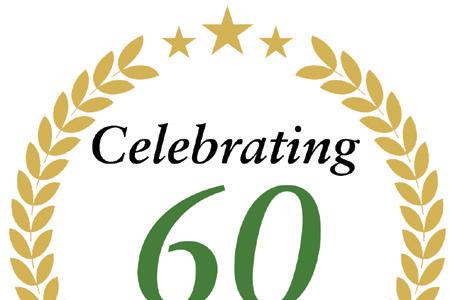



impact on their wellbeing in the grander scheme of things. We have amassed thousands of supporters, through visiting our sanctuary or discovering our work online, who have helped us immeasurably throughout our 60 years, without whom we quite literally would not be here (yes, we’re talking about you, reading this!). And of course, not forgetting our non-human primate counterparts, of whom we have rescued over 80 in the past 60 years. Primates are at the heart of our work, it is their plight that drives us, their struggles that ignite our passion to protect them, and their incomparable intelligence, composure, and strength that inspires us to continue fighting for them. It is for them that we need to keep going, even if it takes another 60 years.


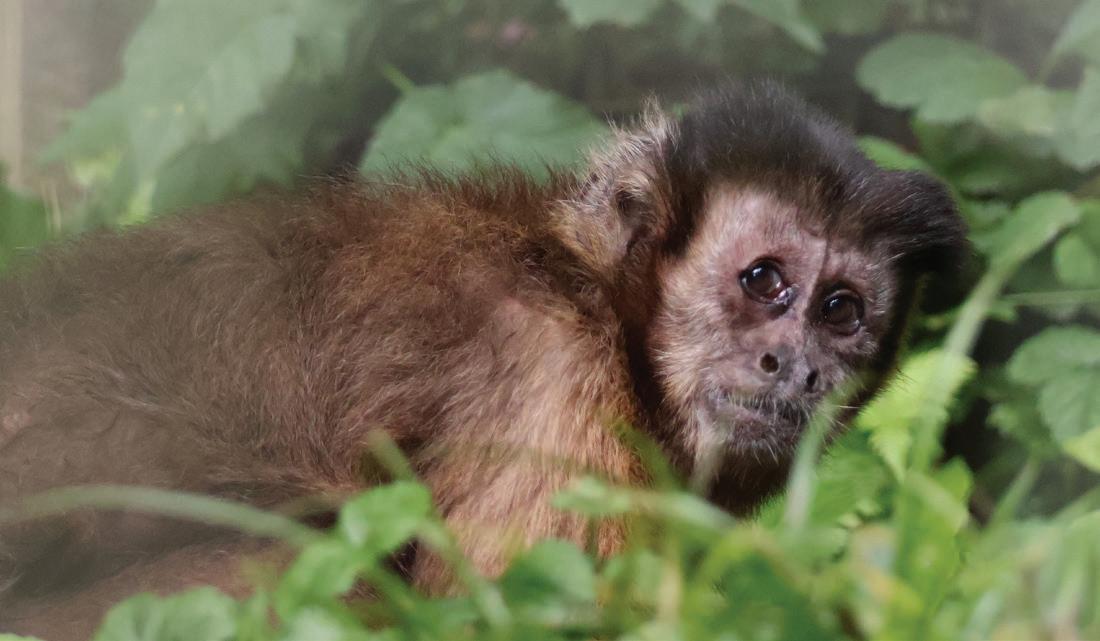











































Your donation will help us to make sure that Jackie the capuchin continues to get her daily diabetes medication.












































































Your generosity will ensure that Bobby the marmoset can have his enclosure adapted to help him manoeuvre around due to his physical disabilities.




















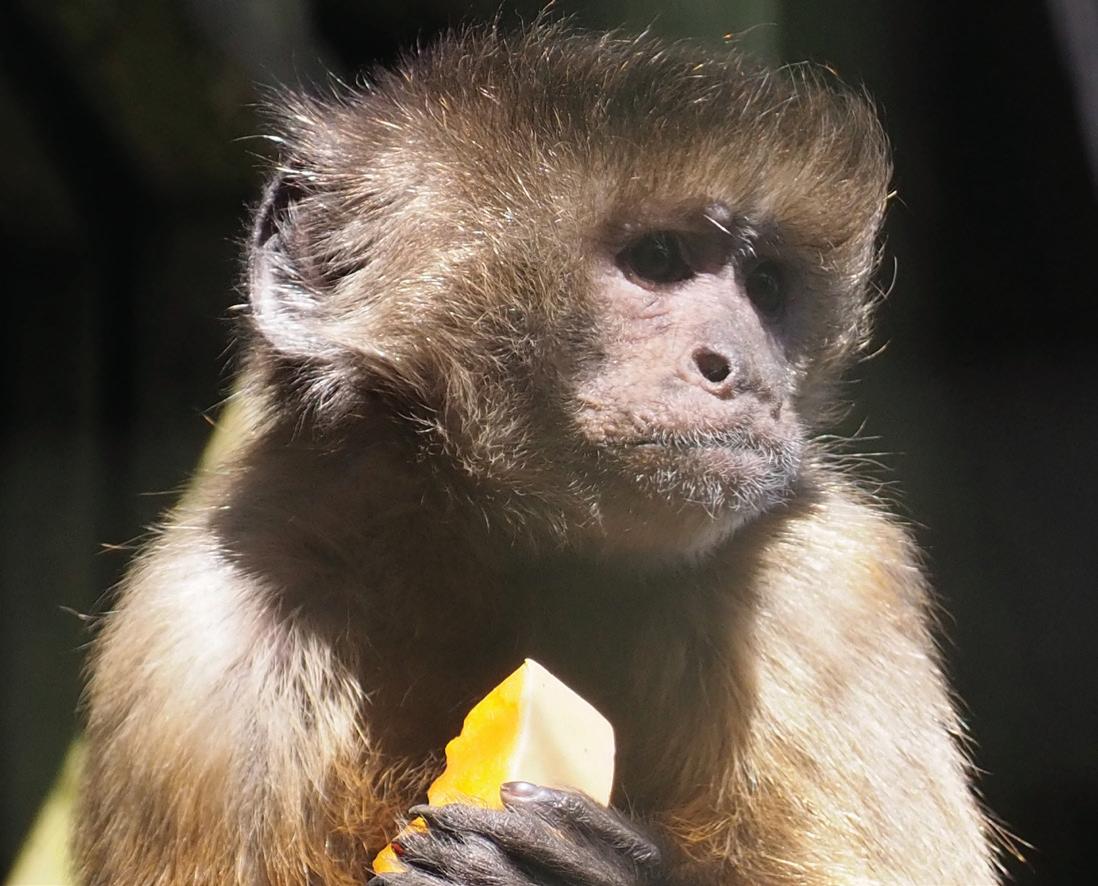



















































Your donations will help us make sure that Chanel the capuchin can snuggle up at night in a blanket in the warmth with a full belly from a healthy, well-balanced diet.

























Over our 60 years we have faced many challenges, but recent years have given us the hardest challenges of them all, as we’re sure you are all aware. The aftermath of the global pandemic and the rising cost of living means that we are facing our most difficult financial years yet.
We asked for your help to save our precious Sanctuary two years ago, and you all responded to our plea for help and got us through.
We cannot say thank you enough. We are leaning on your kindness and generosity once more, are you able to help us again?
These last 60 years wouldn’t have been possible without the dedication, love, and kindness of our supporters. From the bottom of our hearts, thank you.
The Monkey Sanctuary is celebrating 60 years in 2024 - an incredible feat for our charity! We are proud to have been at the forefront of primate welfare in the UK since 1964. In many ways, a lot has changed since then, but at the heart of it all we have the exact same drive and passion for primate welfare and conservation that has seen us through the decades.
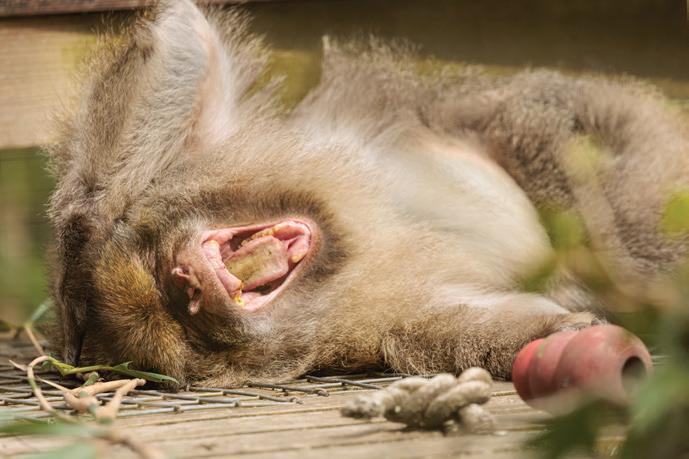
Recently, there have been some social developments up in the macaque territory as Chico has begun sharing an indoor space with his new friends: Long-Tailed Macaques Tom, Floss, and Lola. The room is divided by a wall that has mesh separating the two halves, so the two groups can smell, see and hear each other whilst safely sharing the space. They are all really enjoying the opportunity to have a lot of new social interactions, and Chico and Lola in particular seem to be a bit besotted with each other!
The weeper capuchin groupconsisting of Chanel, Gucci, Morwella, Mr Monkey, and Olly - have been busy working hard on their social skills as we continue to socialise them each day as a larger group, before spliting them off

into smaller groups for the night. This is a pivotal part of the rehabilitation process for rescued monkeys who have spent years in isolation. If their early, formative years are not spent with others of their kind, then learning all about complicated monkey social etiquette and politics is very hard for them in later life. The group continues to work hard developing these skills, and we hope to see their progress continue!

Lily and Pablo have hugely benefitted from some re-roping and essential structural work that took place over the course of a few weeks in their opentopped enclosure, ‘The Trees’. At first, they were a little wary of the changes, as they can often be quite neophobic, but they slowly worked on the courage to explore the changes and they are now very happy and excited to enjoy it all.
In our last newsletter, we told you all about the three marmoset rescues that we undertook in 2023. They’ve recently celebrated their one-year arrival anniversaries, and we thought we would take the opportunity to reflect on their progress and give you all an update! Apollo and Bobby were rescued together from the pet trade, but as two males, it is better for their behavioural, social and psychological welfare to be paired with a female, as this allows them to behave more naturally - as they would in the wild. So once they had settled into their new home, they moved enclosures and we introduced them each to a new female. Both boys were extremely excited to meet females for the first time and spent a few days following them everywhere

and not wanting to let them out of their sight! Eventually, they calmed down, both settling into their new pairings and are now all getting along excellently. Apollo and Bobby can still see each other from their enclosures, so they are often spotted by the care team giving a joyful greeting to each other before they go about their days. Bobby was paired up with Greta, the other marmoset we rescued last year. Greta is quite a confident and forward monkey and was quick to establish her dominance. She has come such a long way from the atrocious cage in which she was confiscated from and is an absolute joy to watch. She loves foraging in the trees for snails and bugs, or taking a few moments to relax in the sunshine - with Bobby always in tow! – having left their former lives behind them.
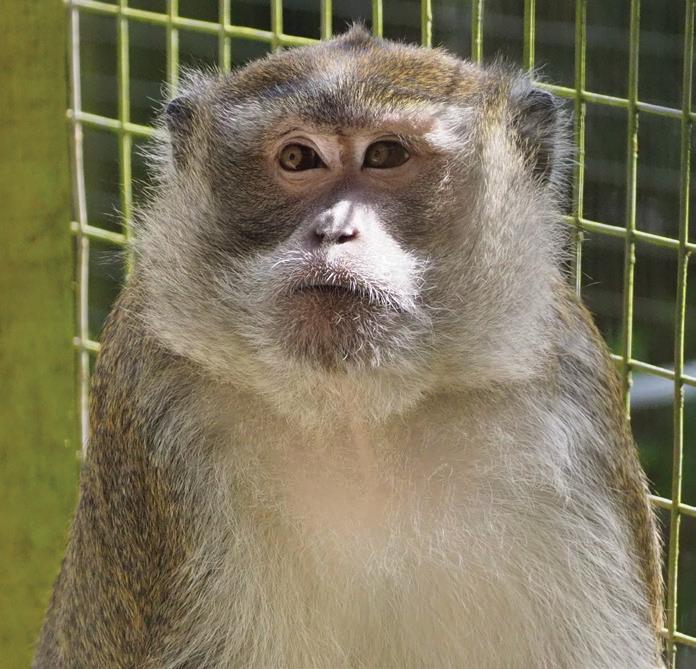


We recently had an inspection at The Monkey Sanctuary to renew our accreditation with the Global Federation of Animal Sanctuaries (GFAS). GFAS’s mission is to improve the quality of care to animals in need of sanctuary, and to offer the only accreditation program serving animals worldwide. Their guidance and support helps sanctuaries and rescue centres to achieve the highest Standards of Excellence, whilst promoting
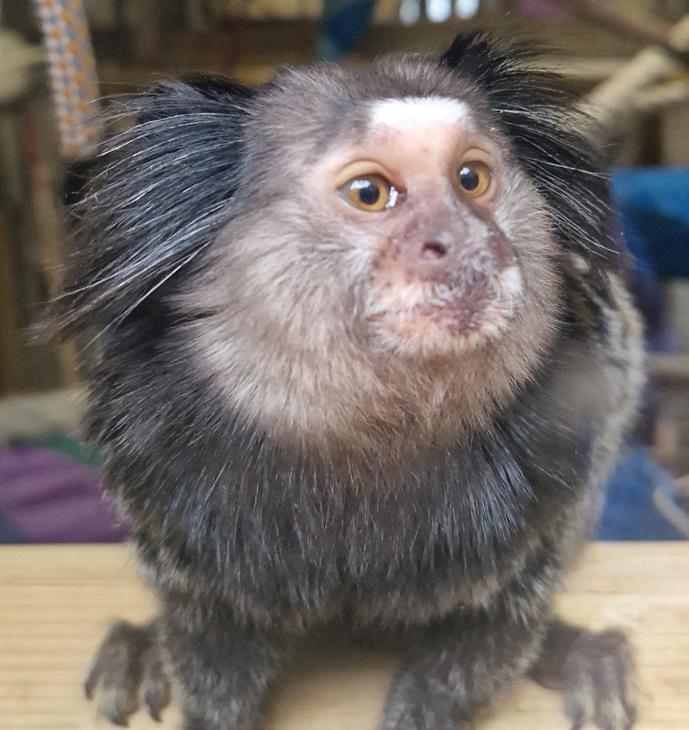
collaboration and raising awareness of sanctuary work. Back in 2012, Wild Futures was the first sanctuary in Europe to receive full accreditation from GFAS - an achievement which we held alone for over 10 years, before we were joined by another sanctuary.
We spent four hours with the inspector, showing them everything that we do here at Wild Futures, and how we keep animal welfare at the very forefront of our work. We are honoured to be accredited by GFAS, and we deeply appreciate the hard work that they are doing in making sure that true sanctuaries are recognised as such. We’re pleased to annouce that we passed our renewal inspection and our accreditation with GFAS continues.
The MSc Primate Conservation students from Oxford Brookes University came for their annual visit in March. We gave them talks about the work that we do, the UK primate pet trade, and disease and injury management in captivity. They also engaged in workshops on enclosure design, capture methods (for veterinary purposes), and creating unique and fulfilling enrichment. Education is such an important part of what we do. Making as many people as possible aware of the plight of primates in the UK helps spread awareness, and will hopefully even inspire more people to support our work or begin a career in primate welfare and conservation.
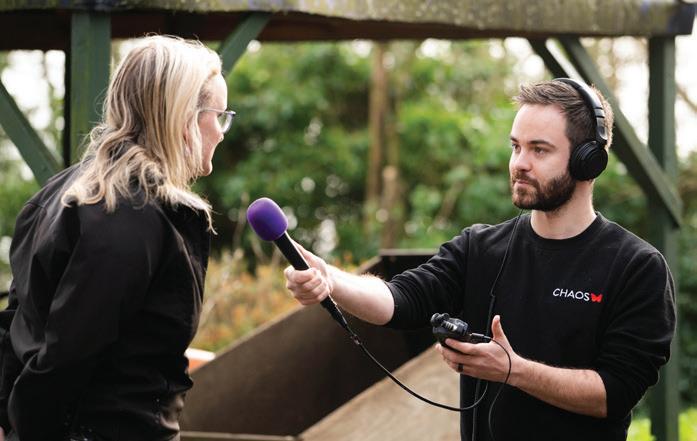
A huge thank you to everyone who donated gifts from our monkey wish list recently. We have had some fantastic items sent that are incredibly useful, all of which help to improve the welfare of the monkeys in our care. Thank you to everyone who sent something to the monkeys, we are so grateful!
In total, we received:
• A fork to help us with gardening around our territory, including providing substrate variety within monkey enclosures by turning over the top layer of soil or woodchip for extra foraging opportunities.
• Shelled nuts, a favourite snack for many of the monkeys. While some of the primates can open them with their teeth, others will need to use rocks to crack them open - very enriching and fun for the monkeys!
• A rake to help us keep our paths tidy around the entire territory. As our site is nestled into the woodland along the Cornish coast, we have a lot of leaves to contend with!
• A wheelbarrow for moving materials around our site. From woodchip and shale, to compost and wood pellets, we often need to transport things around our very hilly site. As there are some paths that our quadbike can’t fit through, wheelbarrows are vital to a well-running sanctuary!
• A squeegee for cleaning the floors in the monkey enclosures. Good hygiene is key to good welfare, and squeegees help to ensure all of the excess cleaning water is removed before the monkeys are let back into their space. No more crawling around on our hands and knees with cloths!
• Buckets to help us with cleaning the enclosures. As this is done daily, these buckets get a lot of use!
• Blankets for the monkeys to sleep with at night. The marmosets in particular love to snuggle up under a few of them.
• A snuffle mat to encourage the monkeys to forage for their food from where it is hidden within the snuffle mat.
If you would like to donate something to the monkeys, please check out our wish list on our website: www.wildfutures.org/waystohelp/monkey-wish-list


We were excited when the team from CHAOS Radio came to the sanctuary to do some filming and recording for their radio show to help raise awareness of our work and our sanctuary. CHAOS, which stands for Community Helping All of Society, are an amazing organisation working with some of the most marginalised, vulnerable, and disadvantaged members of the local community in Cornwall. They provide
opportunities to learn and experiences to gain new skills and knowledge, so people can become empowered to make their own positive actions. We’re incredibly grateful to them for taking the time to come and see the monkeys and hear their stories.
Thank you for your continued support!
In April 2024, Wild Futures launched an appeal asking for your help. Both of our sanctuary vehicles had broken down beyond repair and urgently needed to be replaced. After over a decade of service rescuing and transporting primates, our trusty car ceased to run and was retired. At the same time, our tractor broke down - a vital tool for site maintenance used to move all our biomass pellets, wood, compost, shale, woodchip, ropes etc. around the site.
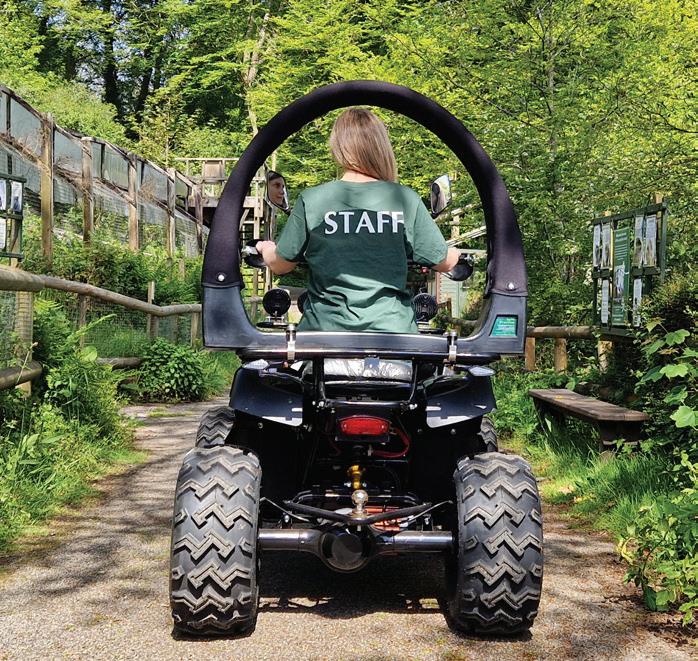
Thankfully, our wonderful supporters came to our rescue, donating an incredible £6,000 to our vehicle appeal! Due to your tremendous generosity, Wild Futures was able to buy a new quadbike, as a replacement for the tractor, within just a couple of weeks! This has been such an unbelievable help to the team, and we are all so incredibly grateful.
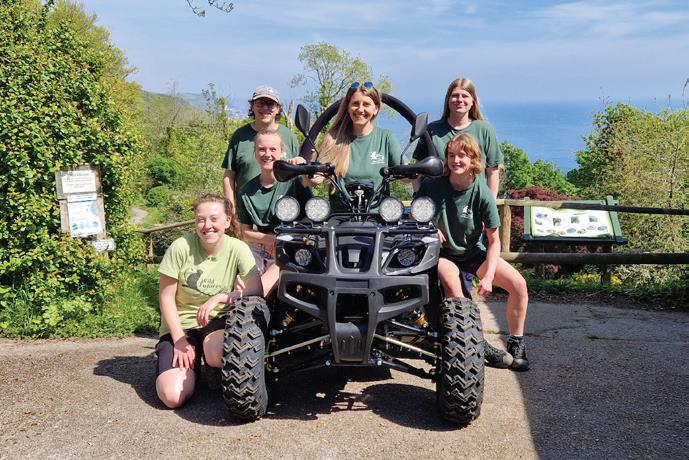
We also received some incredible donations from corporations and trusts who, together, helped to raise £11,500 towards a new van which will be used for everything from primate rescues to vet visits.
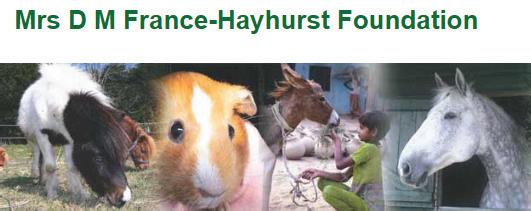
Thank you to the Mrs D M FranceHayhurst Charitable Trust for their grant of £5,000 towards our Urgent Vehicle Appeal. This trust primarily provides grants to charities concerned with animal welfare, which is at the forefront of our work protecting primates and their habitats worldwide.
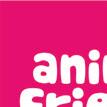



Thank you to Animal Friends Insurance who have generously supported us several times over the years and rushed to our rescue when they heard about the need for a new Sanctuary van, donating an incredible £3,000. Over 25 years, Animal Friends have donated more than £8.5 million to support animal welfare in the UK and around the world. They are on a mission to create a better life for every animal, believing that all animals, from the domestic to the exotic, deserve the right to be protected and to live happy and healthy lives.


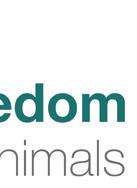
Thank you to Freedom for Animals for donating £1,500 towards our Urgent Vehicle Appeal. Freedom for
Animals began as the Captive Animals’ Protection Society in 1957 and is one of the UK’s longest-running charities working to protect animals. Freedom for Animals has long campaigned against the exotic pet trade and the keeping of wild animals in captivity for human entertainment. We are honoured that they have supported and worked alongside Wild Futures many times over the years.

Thank you to the Norman Family Charitable Trust for supporting us with a grant of £1,000 towards our new Sanctuary vehicle. The Norman Family Charitable Trust provides funding for Westcountry charities, community groups and schools and in the years since it was established in 1979, it has awarded 11,000 grants totalling £11 million to help charities and other nonprofit groups in Southwest England.
Thank you to The Michael and Shirley Hunt Charitable Trust who donated £1,000 to our Urgent Vehicle Appeal and were the first to pledge their support towards it. One of their objectives as a trust is to relieve the suffering of animals that need care and attention, including the provision or maintenance of facilities for the reception and care of unwanted animals or the treatment of sick or ill-treated animals.
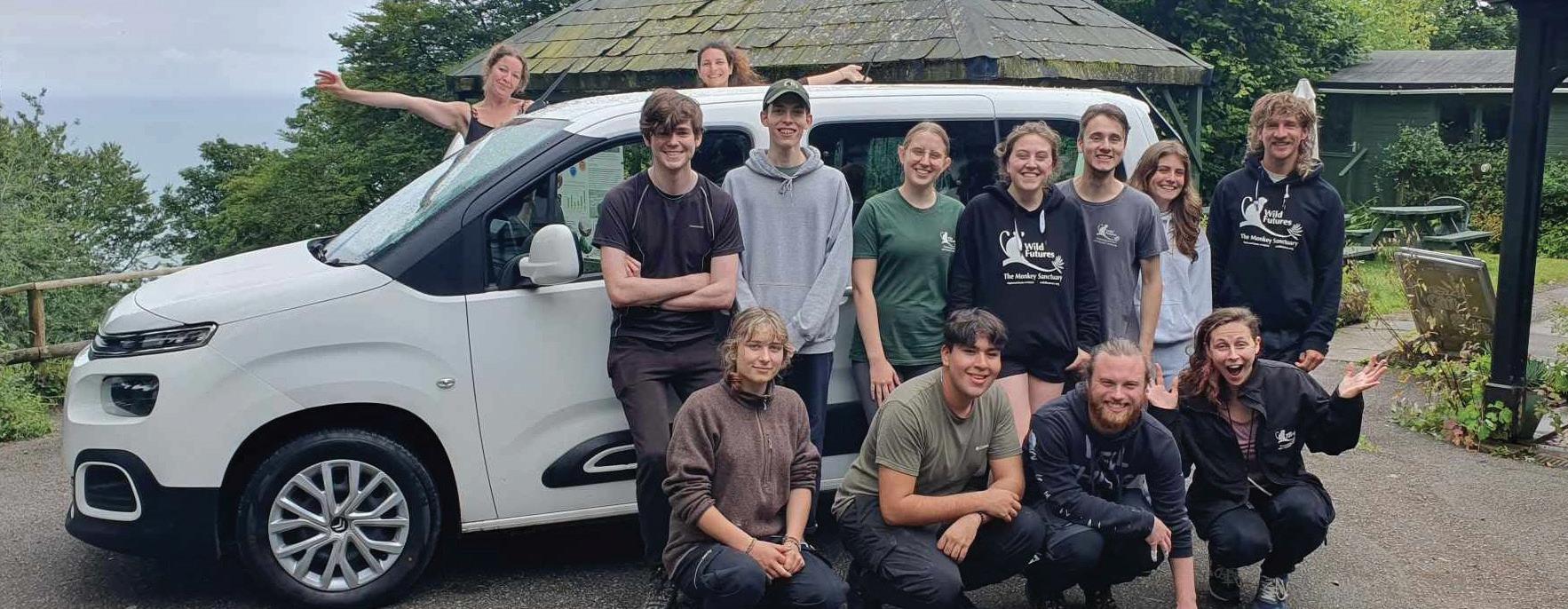
How did you first get involved with Wild Futures?
Ever since I was young, I have always wanted to work with animals (in part thanks to wildlife documentaries I watched continuously as a kid). I was lucky enough to have an opportunity to work at a primate rehabilitation centre in South Africa, working with baboons that were being prepared for release back into the wild. During my time there, I learnt a lot of core skills of primate husbandry and behaviour, as well as falling deeply in love with primates. I spent hours researching primate sanctuaries in the UK that align with my deeply ingrained ethics, with Wild Futures coming up time and time again for their amazing work. I applied for the role and was honoured to get the job. I have loved every second of the amazing unique environment and amazing individuals I have worked with (both primate and human) over the past year.
I am a Primate Care Giver at Wild Futures, working with the Woolly

monkeys, Macaques and Capuchins. During this role I do a range of work including (but not limited to) cleaning their enclosures and creating stimulating enrichment, as well as feeding throughout the day. When we are open to the public, I am also involved in giving talks to visitors on the various species we have at Wild Futures. I enjoy teaching people about the monkeys as individuals as well as at a species level and hope that my passion for the animals is able to shine through on my talks. Finally as I am an avid nature and animal photographer in my spare time, that bleeds through into my work at Wild Futures. I love trying to capture the individual personalities of the monkeys at the sanctuary in my images, which are often posted on Wild Futures social media pages.
What challenges have you faced during your time at Wild Futures?
Working with primates who have traumatic backgrounds from the pet trade produces some challenges in learning to work with them. Over the past year the biggest challenge I have faced is the transition to working
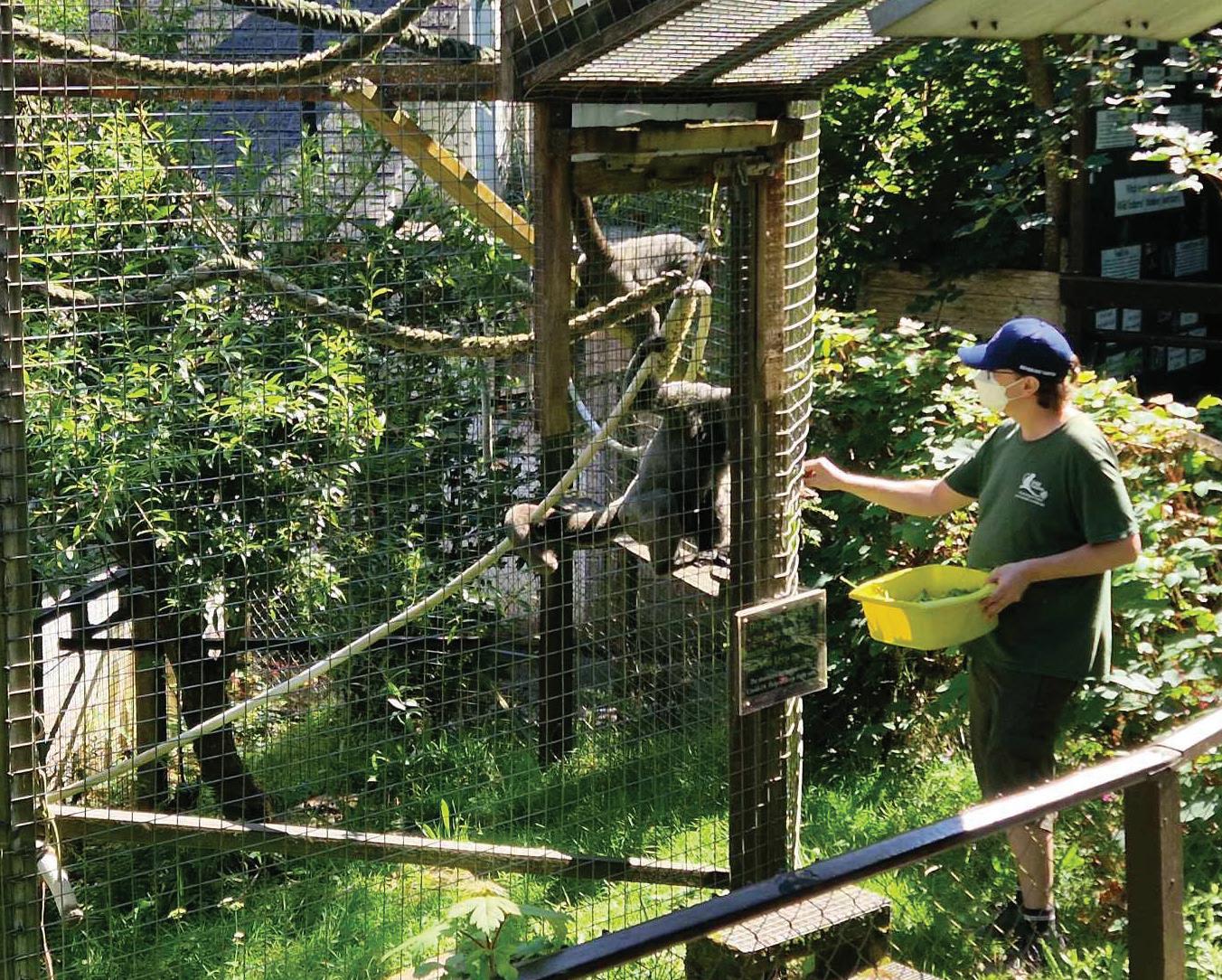

with New World Primates [such as capuchins and woolly monkeys] from my past experience working with Old World Primates [such as baboons and macaques] in South Africa. Another challenge that I have enjoyed has been learning each individual monkey’s personality, their likes and dislikes, and the little quirks that make them, them.
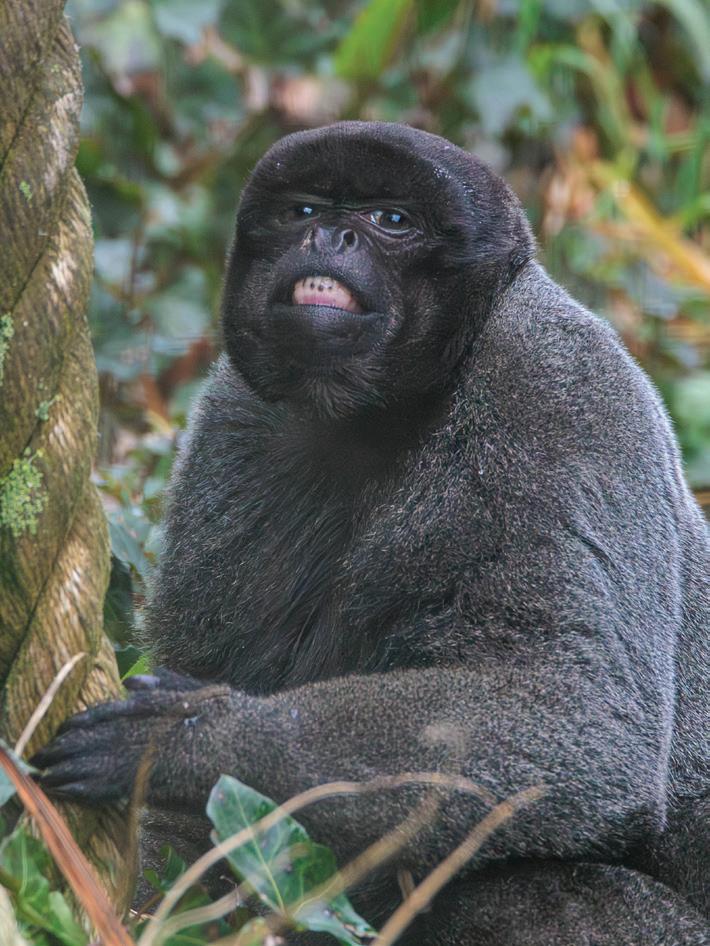
My main inspiration comes from showing and teaching people about animals and primates with emphasis on conservation, whether that is through my photography or through my day-today interactions with members of the public at Wild Futures.
do you hope to achieve in the future?
I would love to continue working with primates and showing off their beauty and individuality through my photography. I hope that one day I’ll have the knowledge and skills to run photography trips to photograph primates in their natural habitat.
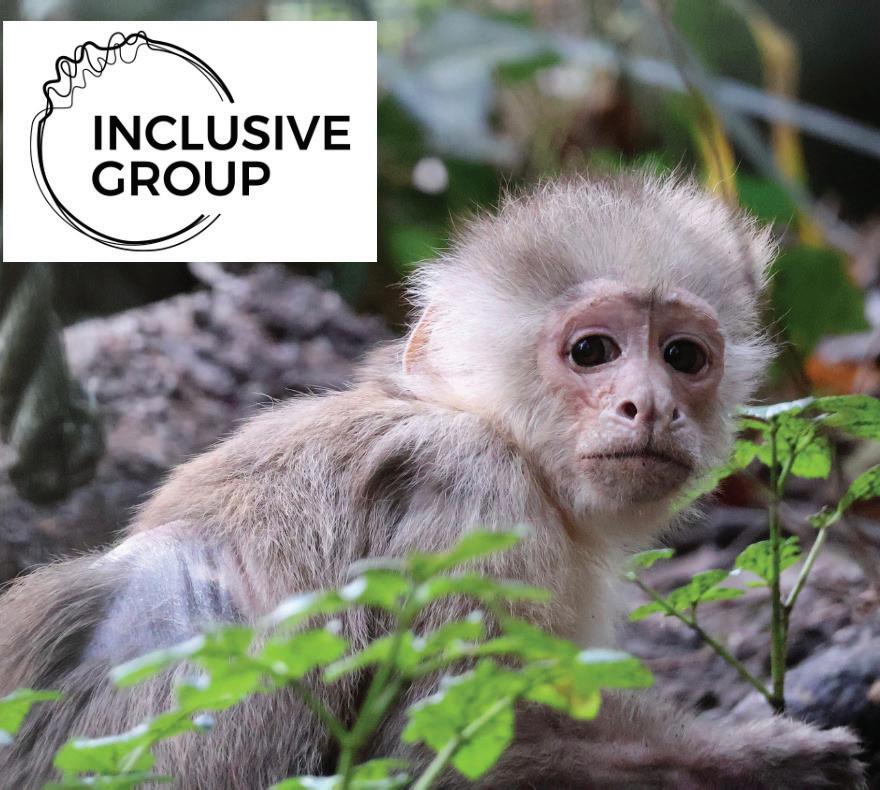
We are delighted to announce that in this, our 60th year as a charity, our Headline Sponsor is Inclusive Group, a globally recognised diversity, equity and inclusion consultancy. Founder and CEO, Sasha Scott, says of the partnership: ‘To me this feels so important, to sponsor animals and nature for a better world makes all we do worthwhile’. Sasha has been recognised as one of the ten leading Global Diversity Consultants in the Global Diversity list. As one of the first Diversity and Inclusion consultants, Sasha set up her practice over 20 years ago and has worked with her team in over 22 countries training over a million people! Thank you to Sasha and Inclusive Group for your incredible support of our cause.

A huge thank you to The Marsh Charitable Trust for donating £500 to Wild Futures for winter supplies, which we used to purchase two heaters to replace broken ones in some of the indoor monkey huts. With these funds we also sourced some materials to replace some broken barriers down in the public gardens, as we do a lot of our site maintenance over the winter period.
The Marsh Charitable Trust was founded in 1981 with the sum of £75,000 by its current Chairman, Mr Brian Marsh OBE.
His aim was to create a sustainable way to give something back to society, by supporting the organisations and people who are making a difference as best he could. The Trust supports around 400 charities every year through the Grants Programme, giving around 100 different Awards to individuals and groups from across the charity sector, all of who make a difference to a cause that they believe in.
A quote from The Marsh Charitable Trust on why they wanted to support Wild Futures:
“We are pleased to able to support Wild Futures through our grant giving programme, most recently this year. The MCT are happy to be able to support the important objectives of Wild Futures and to contribute towards the continuation of their work.”
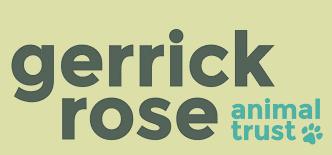
We are very grateful to the Gerrick Rose Animal Trust for contributing £500 to help us repair the fencing around the Sanctuary. The trust is local to the Sanctuary, based in St Austell, Cornwall. Their mission is to provide financial assistance, where necessary, to other charitable organisations within the country whose sole aim is to provide relief from pain and suffering for animals.
The trusts founder, Doris May Rose Gerrick was an animal lover who had dogs and a small farm in Cornwall. When she died at the grand old age of 96, Doris left a large proportion of her estate to the trustees, to be used for funding animal charities. The team now consist of David, Jean, Doris’ friend for many years, and her daughter Cheryl, who remembers that she always had poodles that she used to walk along the cliffs to Charlestown.

Wild Futures would like to take this opportunity to say thank you to The Barry Green Memorial Fund for donating £1,000 to Wild Futures for our work rescuing and providing a better life for the monkeys. The charitable objectives of The Barry Green Memorial Fund are the provision of grants in aid for charities engaged in the rescue, maintenance, and benefit of cruelly treated animals.
A quote from The Barry Green Memorial Fund on why they wanted to support our cause:
“The Barry Green Memorial Fund is dedicated to providing financial help to any animal charity in their pursuance of the rescue and maintenance of any animal, whether falling foul of cruelty by neglect or human interaction. We particularly were drawn to supporting Wild Futures as so often wildlife is not in the public eye as much as domestic animals and equine causes and we try to maintain a balance in our grant making to all animals.”

Thank you to the following businesses who have supported us with invaluable donations of everyday items at the sanctuary including timber, building supplies, masks and gloves for the primate caregivers and supplements for the monkeys!
Thank you to Bradfords Building Supplies for donating timber, guttering, and cement mix to our charity. All of these items are invaluable here at The Monkey Sanctuary and will all be put to good use building and repairing enclosures for the monkeys.

Bradfords is a family business which recently celebrated its 250th anniversary! Thank you to Ben Moore, Giles Bradford, and the rest of the team at Bradfords Building Supplies Liskeard for your generosity.
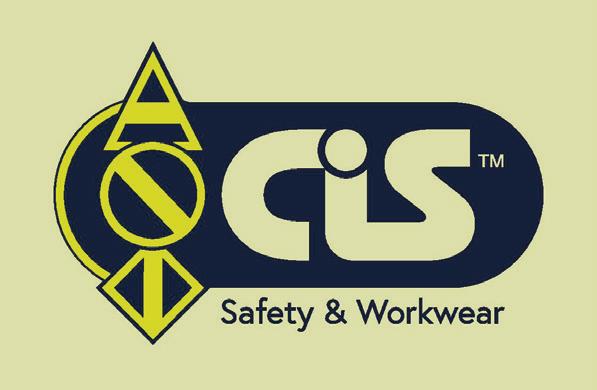
A huge thanks to all at Cornish Industrial Supplies, experienced suppliers of a whole range of hygiene, clothing, PPE and workplace safety equipment. CIS sent us a donation of gloves and masks which are particularly helpful in our quarantine facilities and in our workshops where we build and maintain the enclosures. Their Logistics Supervisor Megan Ward said they were ‘really, really happy to be able to help’.








Our primate care givers and volunteers are out in all weathers working tirelessly in the monkey enclosures and need suitable gear in order to stay safe and warm. We were so pleased to receive a large donation of wellies from Lakeland Active who were thrilled to contribute, saying:
“We love designing useful products to make every day life that bit easier, which is why we’re proud to donate our wellies to The Monkey Sanctuary. We hope our boots help their primate care giving staff & volunteers to keep up the awesome work they do!”
Thank you to everyone at Lakeland Active!
We would like to say a huge thank you to Clementine Simmons for running the Wye Valley Marathon on the 21st July to raise money for Wild Futures. The route Clemetine ran follows along the former Wye Valley Railway and includes the 1.1 kilometre long Tidenham Tunnel, pictured here. The tunnel has a resident population
of the endangered lesser horseshoe bats and, as a result, this lighting (pictured) is the brightest permitted by the Natural England Bat license! Clementine raised an incredible £323 for the monkeys and we are so grateful to her! Well done Clementine, and thank you so much!

Viridian have been supporting the Sanctuary with supplements for the monkeys for almost two decades! Lei from Viridian said:
“It’s our pleasure to support Wild Futures and promote the incredible work you do at the sanctuary in ensuring primate welfare. Viridian has been supporting the residents since 2007, so this is our 17th consecutive year of sending supplements to your charity. We’re thrilled to continue to help your safe haven.”
The Michael Marks Charitable Trust
We are proud to have received a grant of £3,000 from the Michael Marks Charitable Trust to help us with the protection and improvement of the physical and natural environment at the Sanctuary. We do this by managing our site and gardens for the benefit of wildlife, creating and protecting habitats, particularly for those native species who are endangered, such as the pearl bordered fritillary butterfly and the lesser horse shoe bat. The Michael Marks Charitable Trust was founded by the grandson of the founder of the retail chain Marks and Spencer, to support the preservation of the environment and promotion of culture. Lord Marks was succeeded as Chairman by his wife Marina in 1997 and in that year she was recognised as Woman of the Year in Great Britain for her charitable work. Thank you so much to Lady Marks and her fellow Trustees for their generosity in helping us achieve our charitable aims.

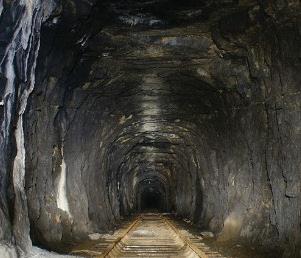
Short-term volunteers make a huge contribution to the smooth running of The Monkey Sanctuary by generously giving their time, energy and skills. Everyone at Wild Futures is immensely grateful for all their hard work. This year so far, the team at Wild Futures have welcomed 73 volunteers from 12 different countries. In August alone, volunteers donated a total of 495 hours to help support our work at The Monkey Sanctuary!
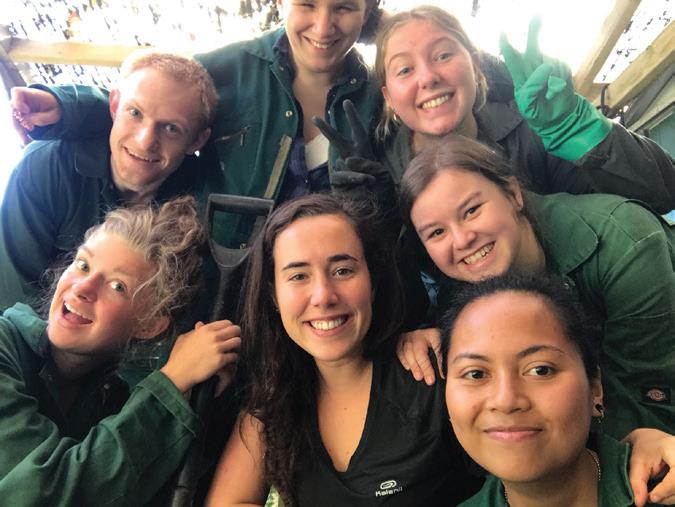
Our volunteers help our specialist Primate Care team provide the highest levels of care to the monkeys by cleaning enclosures, preparing food bowls, and making enrichment items daily. Volunteers also help us to take care of our buildings and grounds and can often be found painting, weeding, and looking after our visitors when we are open to the public. Some of the projects that they have helped us with this year include:
• Painting new designs on our Orienteering Trail markers
• Designing and painting a Corn Throw game for families to play in our Wildlife Gardens
• Painting our picnic benches
• Creating informative signs
• Taking care of our Wildlife Gardens

to help maximise their benefit to nature
• Cleaning ropes ready to be used again when the team re-rope enclosures
• Running arts and crafts workshops for visiting families

Individuals who choose to volunteer with us do so for a variety of reasons –for some it helps to meet a requirement of their college or university studies, while others want the chance to learn more about the work we do rescuing and rehabilitating monkeys from the UK pet trade. What unites all those who join us is a shared desire to protect primates and habitats worldwide and make a genuine difference to the lives of the rescued monkeys in our care.
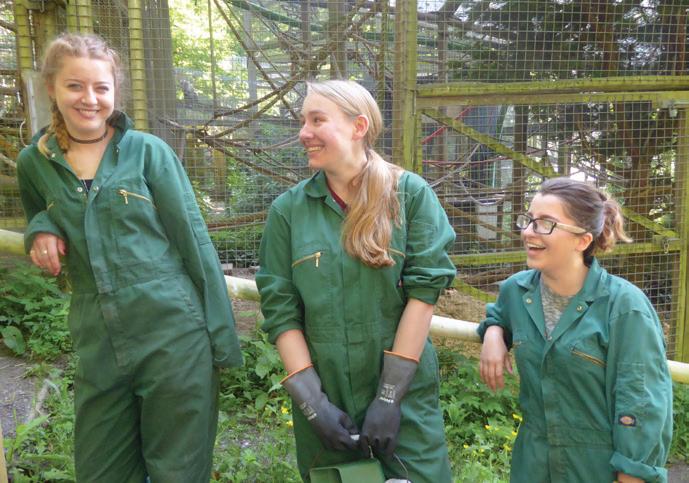
At the end of a volunteer’s placement with us, we ask them to share their thoughts on their time at the Sanctuary. Here is some of the recent feedback we have received:
“It’s been so lovely spending time with like-minded people and seeing all the behind-thescenes work that goes into taking care of the monkeys.”
- Leo
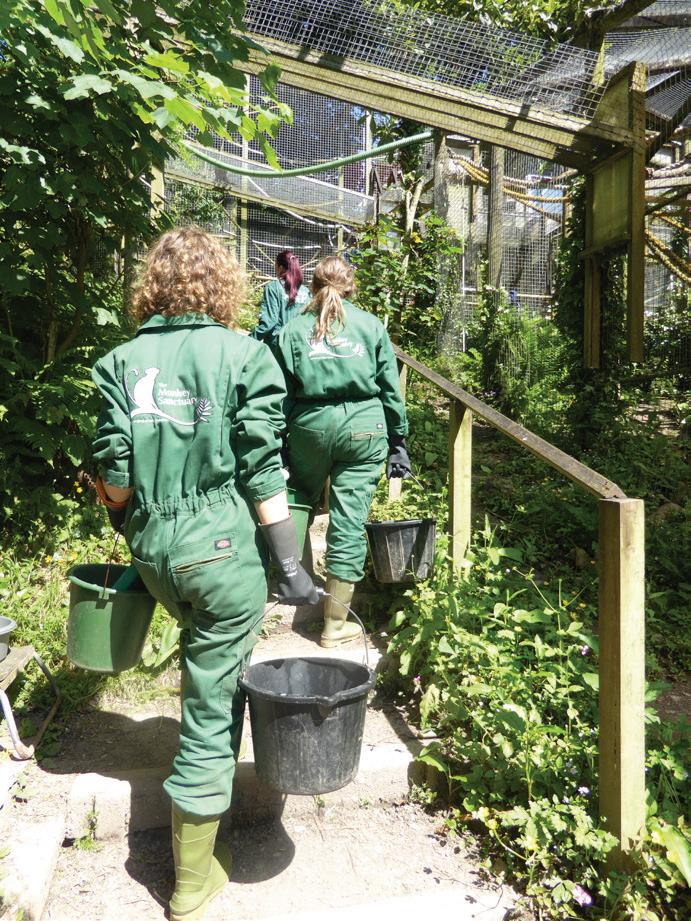
“I felt so welcome and included from my first day. It has really felt like home here, which is not something I can say for anywhere else I’ve been, and it’s definitely changed how I want to spend the rest of my life.”
- Oliver
“I have grown so much in confidence in the short time I’ve been here and have made so many lifelong memories. The work done here is incredible and I’m so grateful that I’ve been able to help in some small way.” - Izzy
“Being here this year has changed my life in so many ways. The effort you put into the care of these incredible, beautiful monkeys has set my expectation for animal care and conservation. I am so glad I chose this place to kickstart my work in conservation.” - Alice
If you, or anyone you know, is interested in volunteering with Wild Futures, please email us at volunteer@wildfutures.org









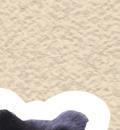








The loudest monkey in the world is the Howler Monkey! Their calls can be heard up to 3 miles away!




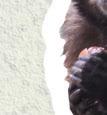





When swinging through the treetops, Spider Monkeys have been known to jump as far as 9 meters – that’s 30 feet!










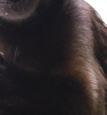

































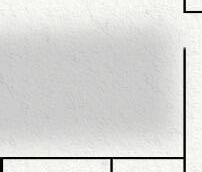



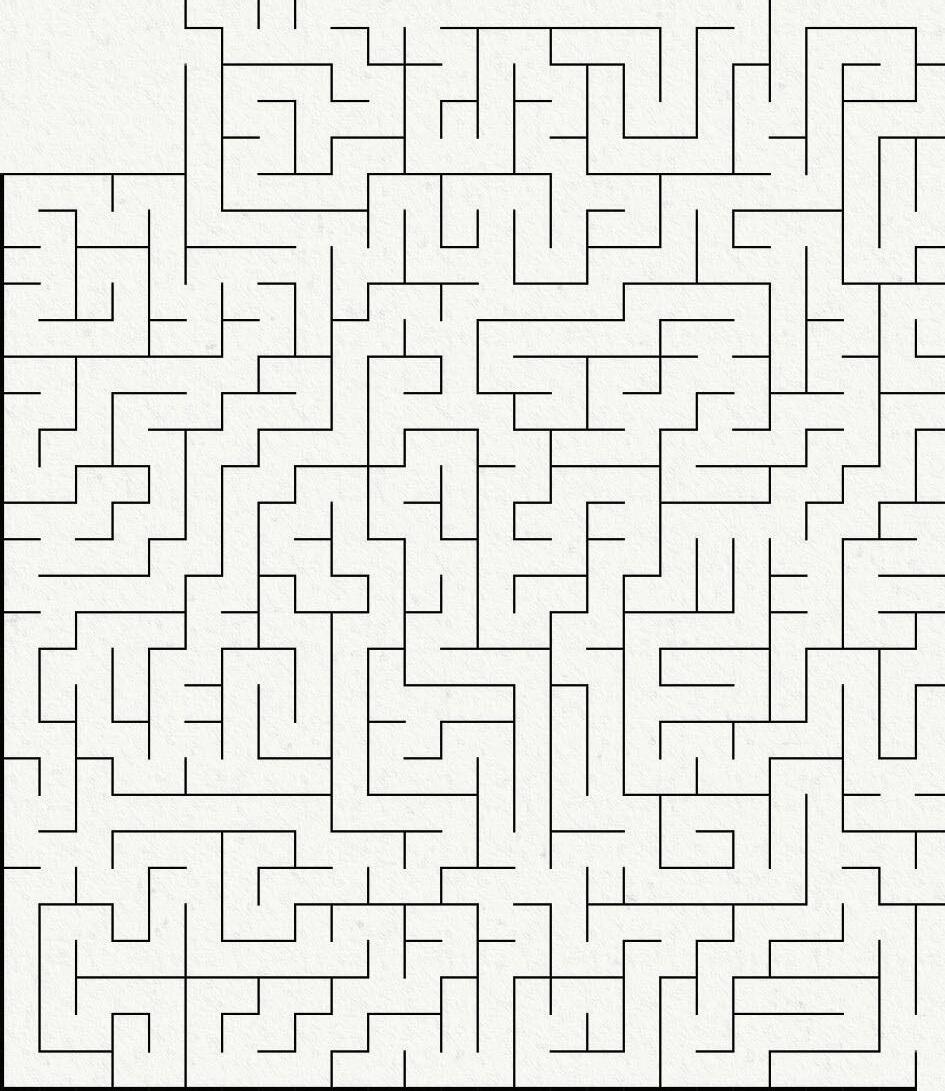




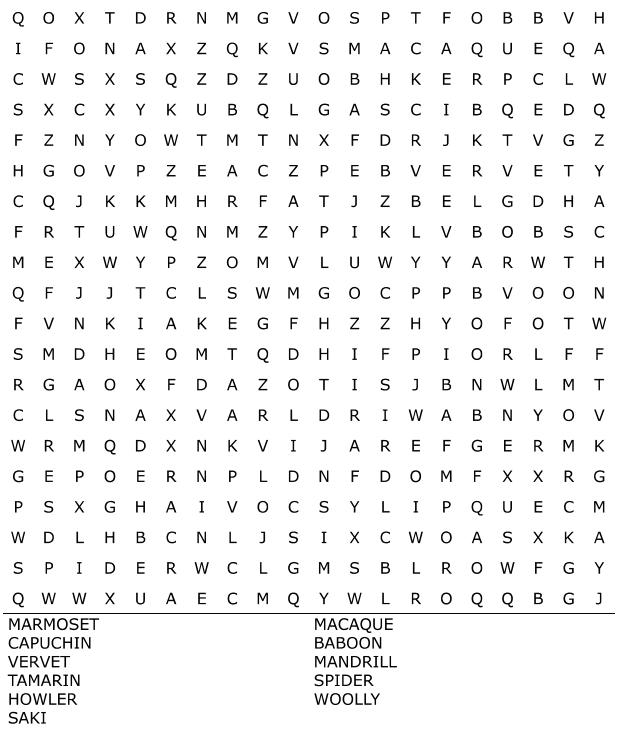





































































































































































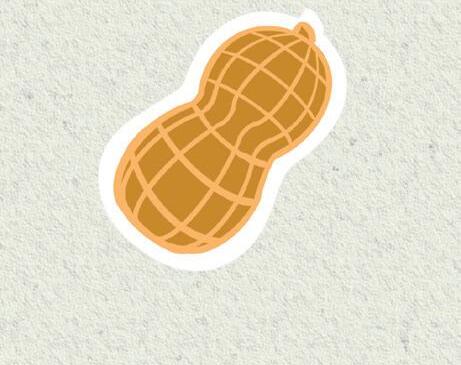










The Slow Loris not only has incredible night vision, but can also produce venom. They are the worlds only venomous primate!


Gelada’s use three unique types of yawns to communicate!







































































































We have some brand-new and exciting merchandise!
You asked, we listened! In response to your feedback and suggestions, we are delighted to introduce our new line of sleek and stylish monochrome merchandise! Featuring matching adult and child t-shirts, and with the return of the classic and ever-popular hoody, there will certainly be something new to add to your collection! We are also excited to introduce a brand-new beanie hat to the range – a highly sought-after item amongst our team that we’re delighted to share with you! All items are proudly adorned with The Monkey Sanctuary logo – so wherever you go, you can be sure your support will be noticed.
Don’t forget, all proceeds from purchases in our shop go directly back to helping us care for the monkeys at The Monkey Sanctuary, as well as to educate on and campaign against the cruelties of the UK primate pet trade. So, your purchase directly contributes towards the work we do.
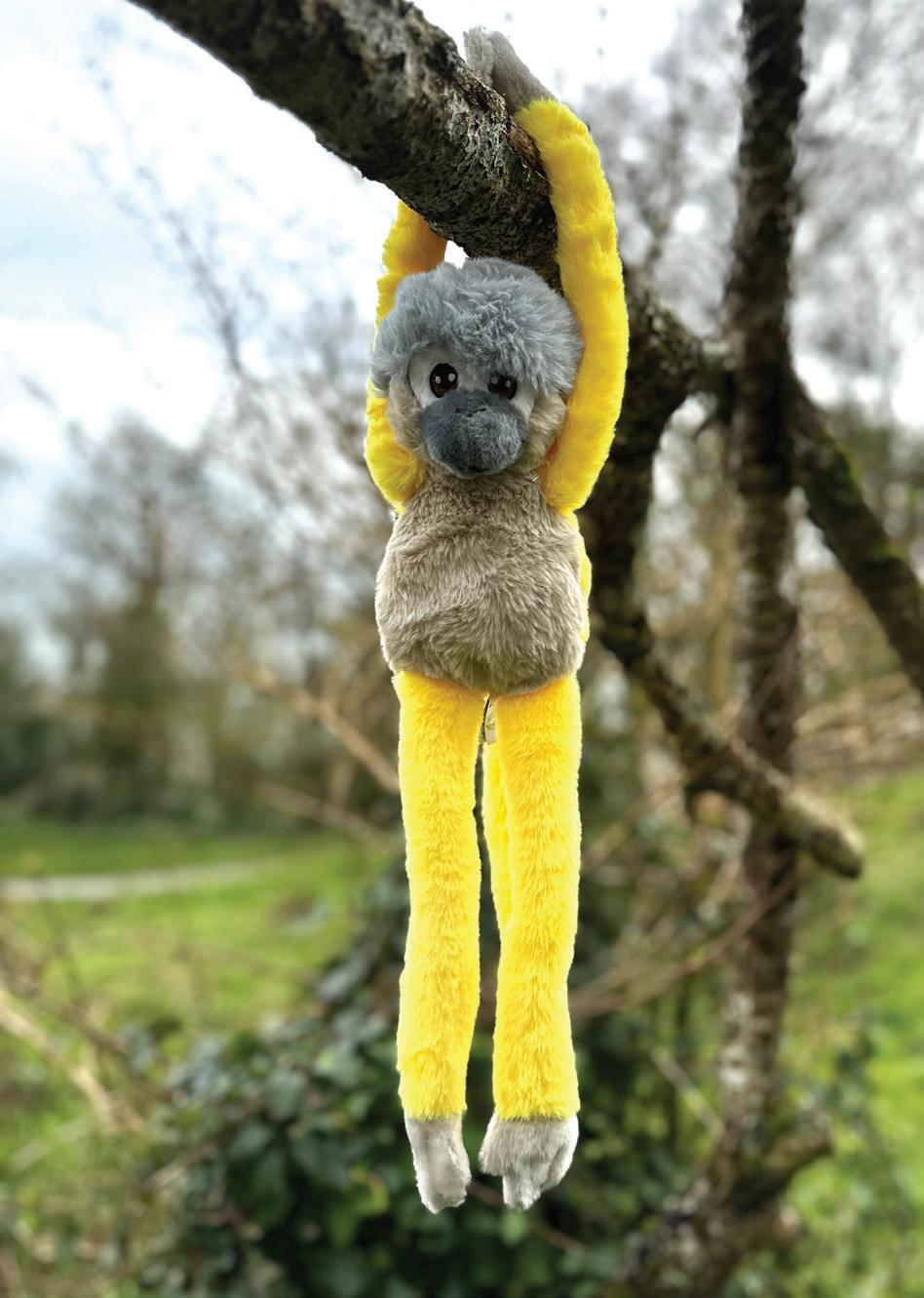
With Christmas just around the corner, you can get the perfect gift for a loved one, whilst supporting Wild Futures and the monkeys in our care!
Just visit www.wildfutures.org/shop to see the range. If you have any suggestions or things you would like to see, please let us know!
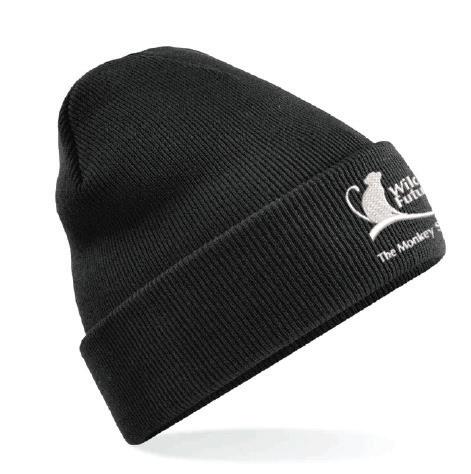
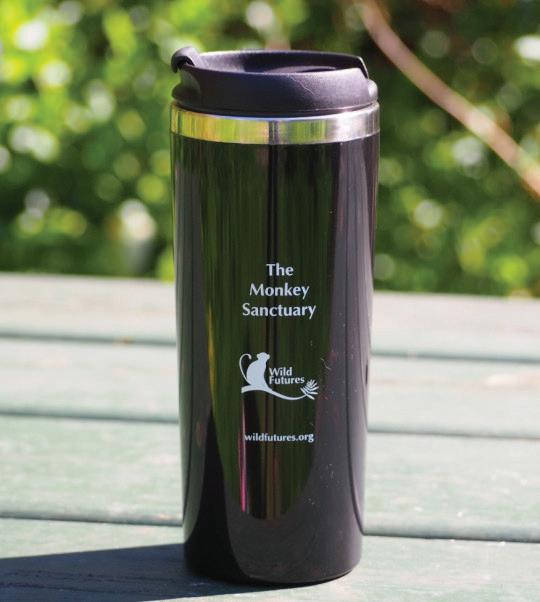

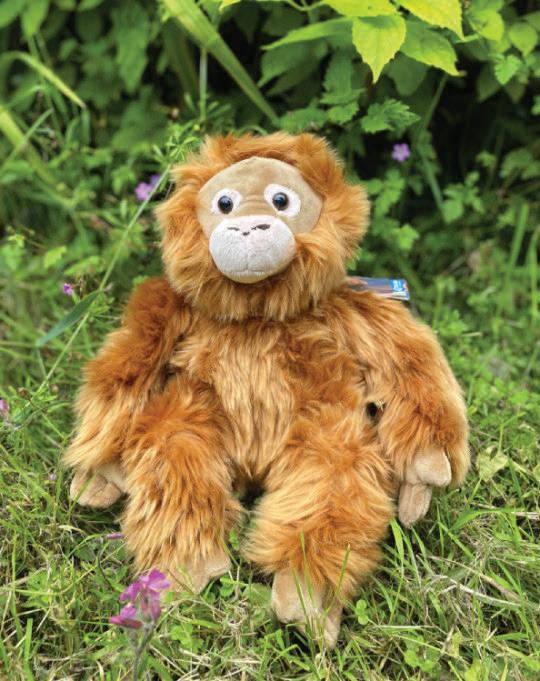
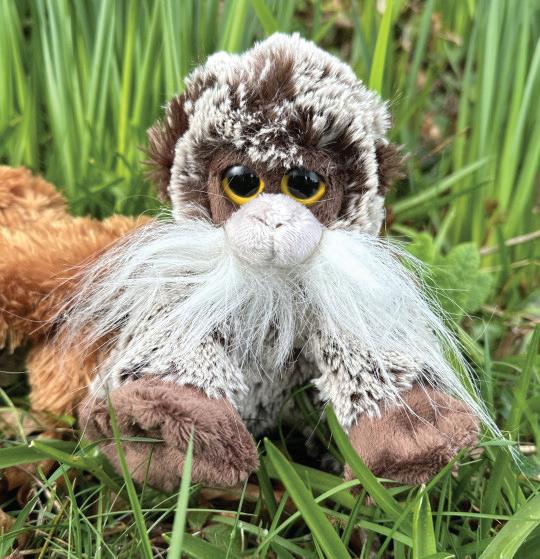
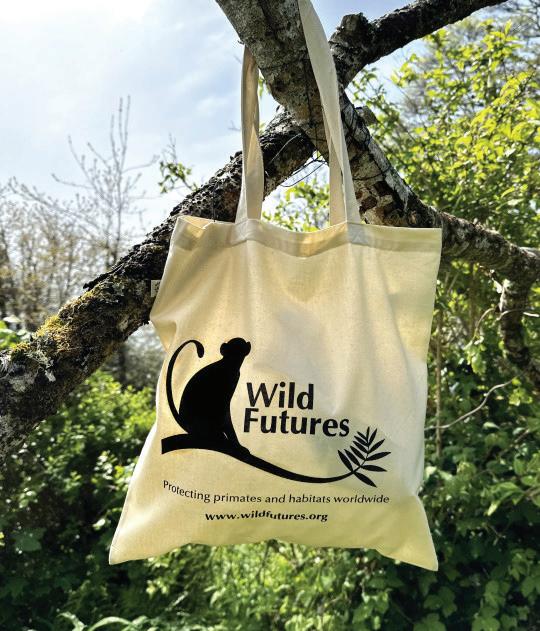


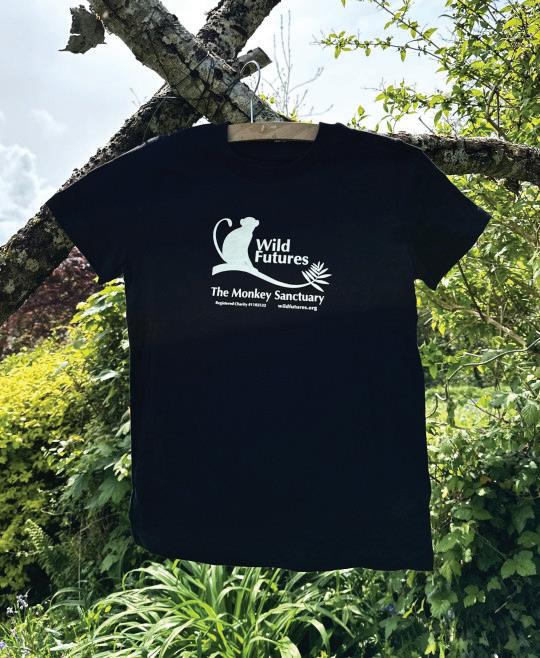
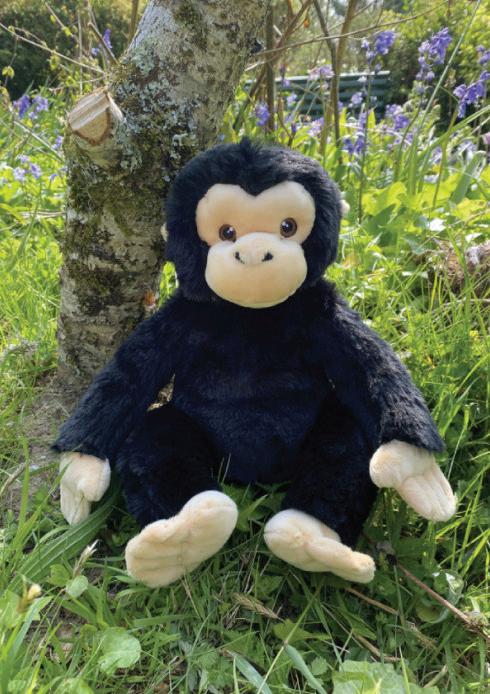
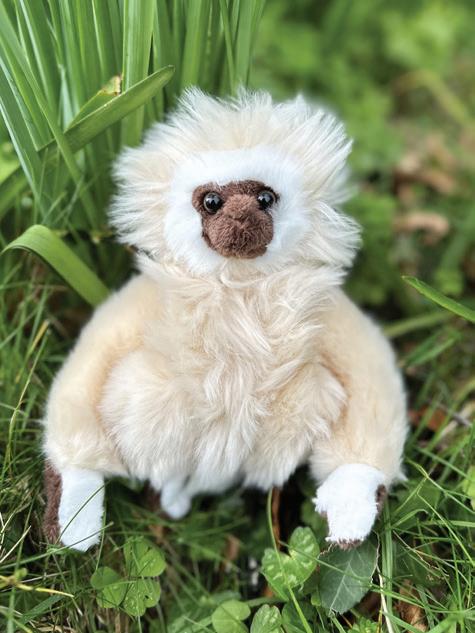
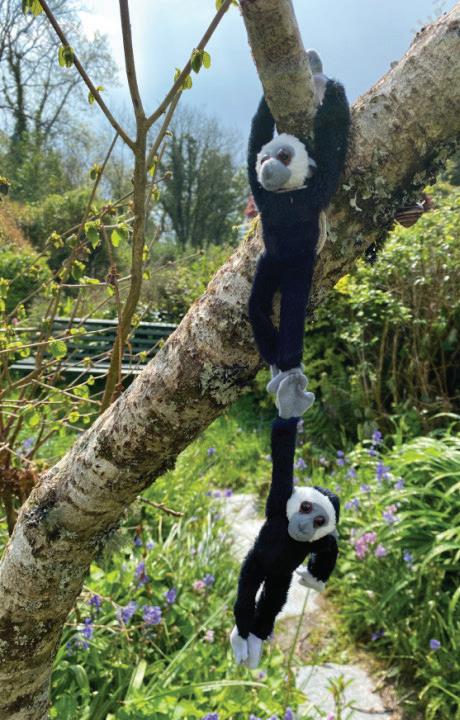
Make a real difference by adopting a monkey! From just £3 a month, you can help us to continue our vital work of caring for the rescued monkeys at our sanctuary, and campaigning to end the UK primate pet trade. We offer adoption packs for an individual, a couple, or a family within the UK or anywhere in the world, so it really is a gift with a difference and a wonderful way to show someone you care.
PLUS - Did you know that we now offer digital adoption packs? You will receive all the adoption pack material via email! You can even include a gift message at no extra cost.
Each adoption pack includes:
• A personalised certificate
• A photo of your chosen monkey
• Your chosen monkey’s story
• A 30% discounted entry pass into our Sanctuary
• And more …
you can feel good knowing that your gift is making a difference to the monkeys.


• 300g self-raising flour
• 1 tsp baking powder
• 1 tbsp sugar
• 1 tbsp vanilla extract
• 400ml plant-based milk (such as oat, almond or soya)


Why not consider adopting Betty, a wonderfully kind and smart capuchin who came to The Monkey Sanctuary with her family in 2012? Or maybe Lola, a beautiful and independent long-tailed macaque who arrived at The Monkey Sanctuary in January 2022, after living in someone’s back garden for many years, being kept as a pet.






Giving a gift to the monkeys from yourself or a loved one is a truly remarkable and generous way to support the monkeys and our work. This unique and special gift can be purchased for yourself, someone else, or in memory of someone special, and is sent digitally, direct to your inbox – meaning there’s no need to wait around for the post to arrive!
• 1 tbsp vegetable oil for cooking
• Toppings of your choice –Banana slices, blueberries, maple syrup, vegan chocolate chips, plant-based yogurt
Method













Simply visit www.wildfutures.org/adopt, choose a monkey and complete the forms. We’ll do the rest! We offer either a monthly payment (UK only), or a one-off annual payment – giving you flexibility and choice.
All funds raised through our adoption scheme go directly back into caring for the monkeys and furthering our work, so

With all profits raised directly benefitting the monkeys, this is a really special way of showing someone you care.
We have a range of options available to suit every budget. Head on over to www.wildfutures.org/shop to view the full range.
Donate to our work!
Give the ultimate gift to the monkeys! By donating in your own name, or that of a loved one, you will be helping to ensure that we can continue to keep our promise of being there for the monkeys. Each and every donation means the world to us, no matter if big or small, and we are so incredibly thankful for anything you are able to give. You can also choose to donate a regular amount every month – allowing us to better plan for the future. Please visit www.wildfutures.org/donate

1. Whisk the flour, baking powder, sugar, vanilla extract and a pinch of salt in a bowl until mixed. Slowly pour in the milk until you get a smooth, thick batter.
2. Heat a little of the oil in a non-stick frying pan over a medium-low heat and add 2 tbsp batter into the pan at a time to make small, round pancakes.
3. Cook for 3-4 mins until the edges are set, and bubbles are appearing on the surface. Flip the pancakes over and cook for another 2-3 mins until golden on both sides and cooked through.
4. Add the toppings of your choice and enjoy!
Recipe from bbcgoodfood.com
That’s 60 years of rescuing, rehoming, rehabilitating primates in need. 60 years of saving them from abuse, suffering, and neglect. 60 years of fighting their corner, lobbying the government, and making changes to the law to ensure that they have better protection. The fight is far from over, there are still thousands of primates out there that need our help, and we won’t stop until they are all safe. Thank you for being on this journey with us, we literally couldn’t do it without you.
If you are able to, please consider donating to our charity to help us continue our vital work helping primates in need. Visit www.wildfutures.org/donate or complete the form below to donate today. Thank you.
to make
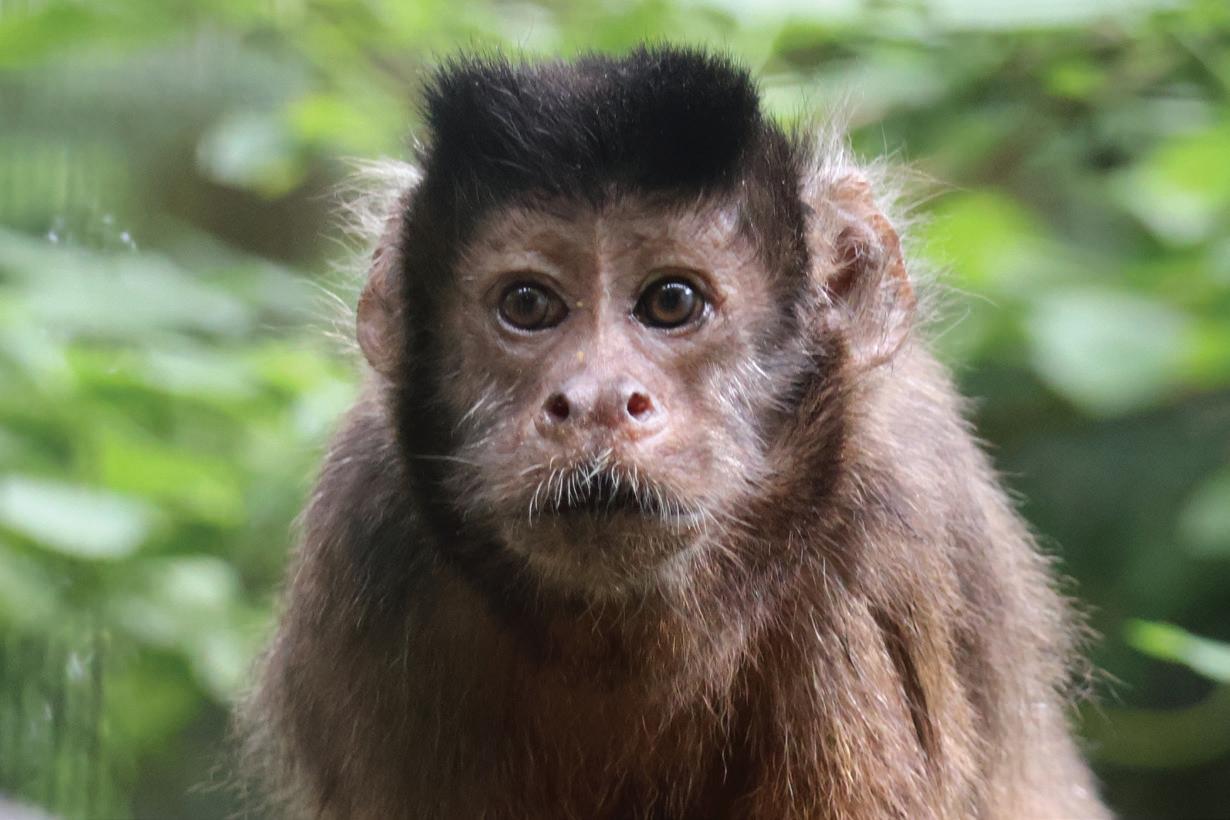
• Visit www.wildfutures.org/donate to donate online
• Or fill out the form below and send a cheque made payable to 'Wild Futures' to Wild Futures, Murrayton House, St Martin, Looe, PL13 1NZ
Title
Email Address First Name Surname Postcode
that is at least equal to the amount of tax that all the charities or CASCs* that I donate to will reclaim on my gifts for that tax year. I understand that other taxes such as VAT and Council Tax do not qualify. I understand the charity will reclaim 25p of tax on every £1 that I give. Please see our privacy policy on our website to find out how we store, process and use your data.
We simply couldn’t continue our work without the wonderful support of people like you - thank you!
Our work is only made possible with the kind support of people like you. We’d love to keep you updated on the monkeys and our work, and to help us further our charitable aims. Please select here and add your email above if you would like to subscribe to our monkey news sent straight to your inbox:
I would like to receive my newsletters via email, helping Wild Futures to save on costs and our environmental impact.
Please do not send me a Thank You letter, saving on postage costs and leaving more money for the monkeys.
*You can unsubscribe at any time by emailing us info@wildfutures.org. Please note that the data collected on this form will be securely held on Wild Futures database and will be held securely in line with current data protection legislation. Find out more about how we use, store and process your data by looking at our privacy policy on our website, www.wildfutures.org/about-us/privacy-policy